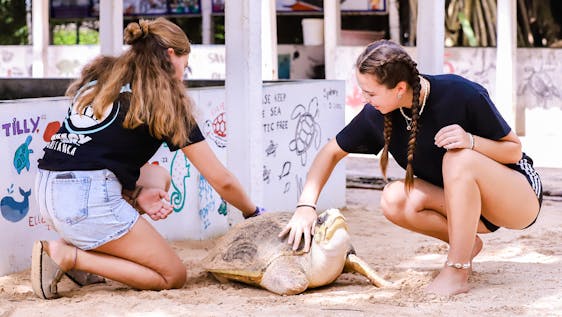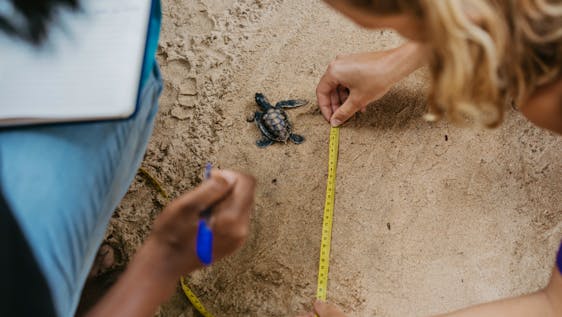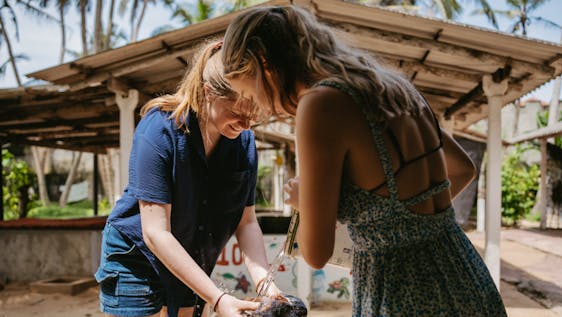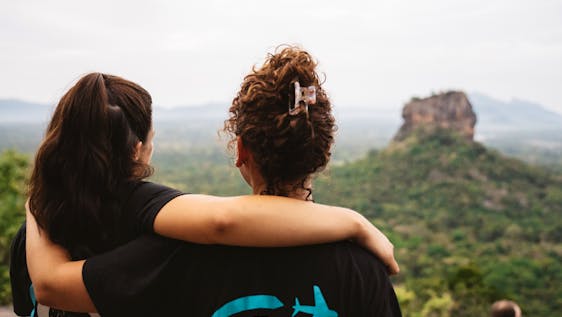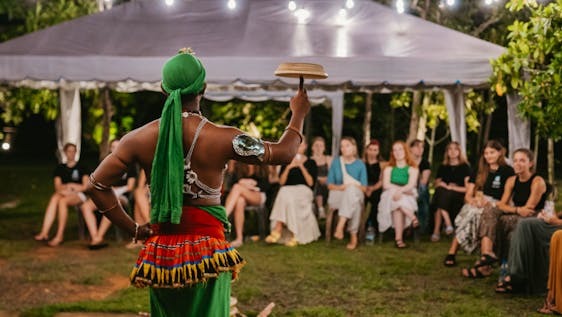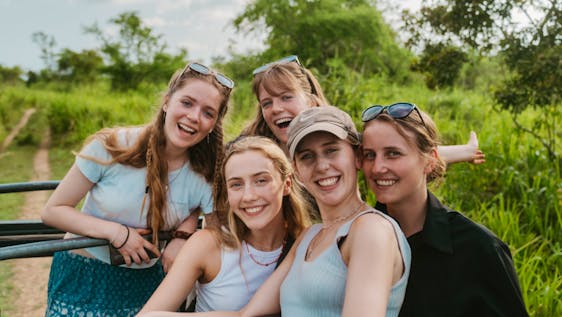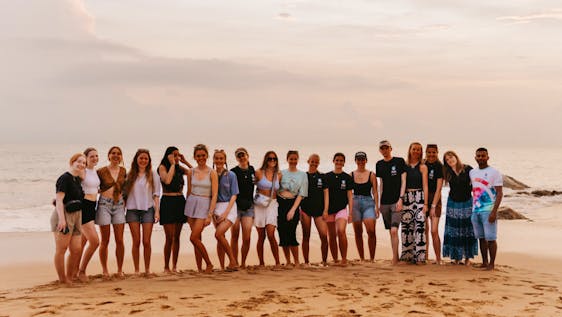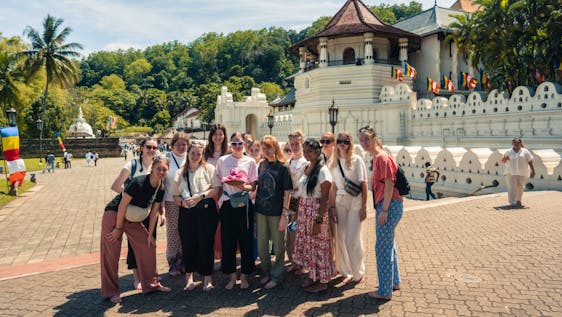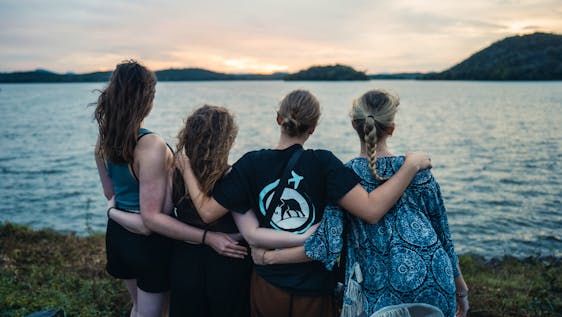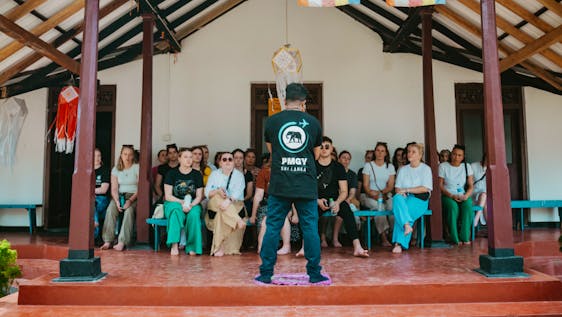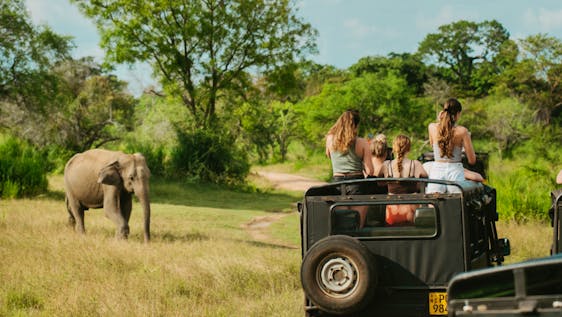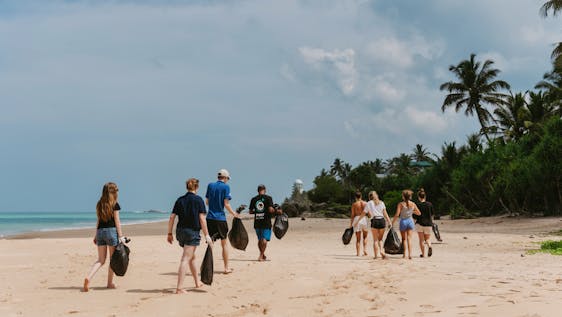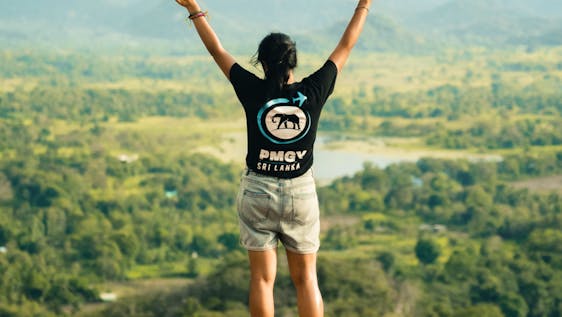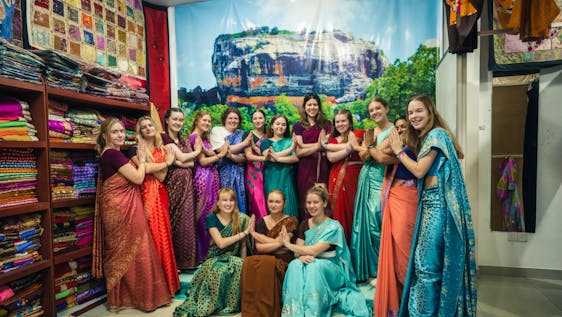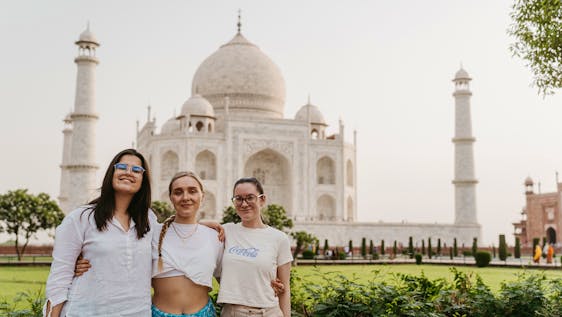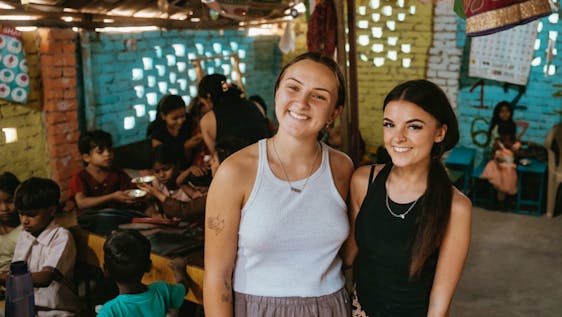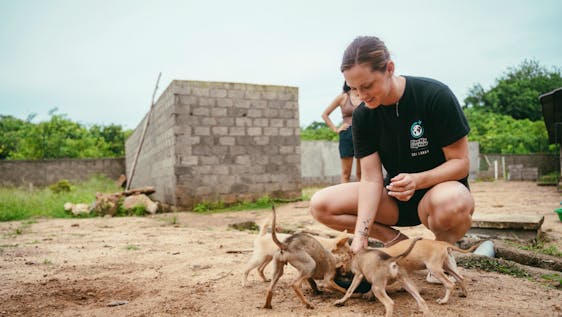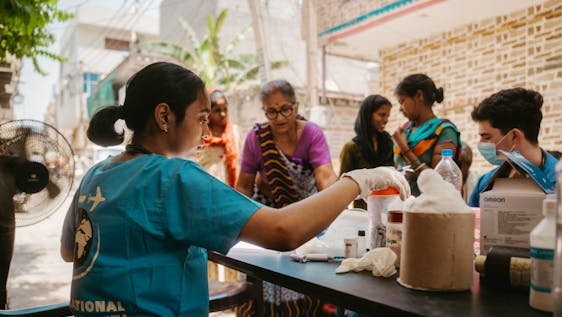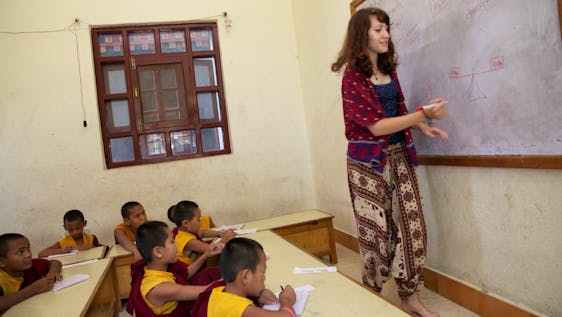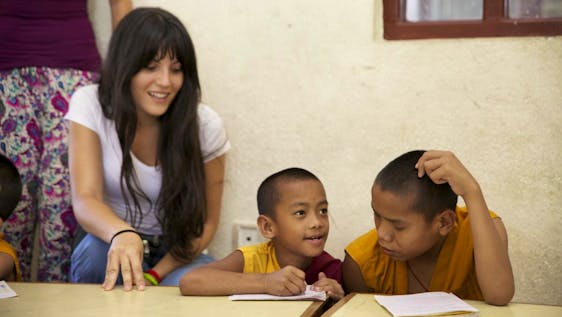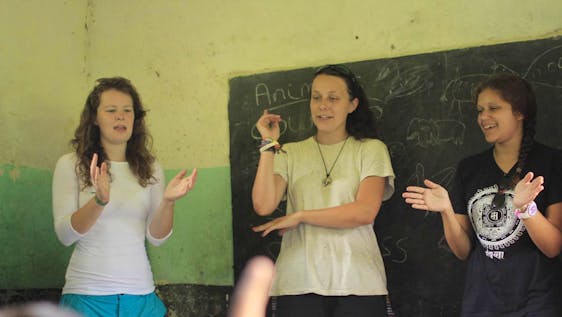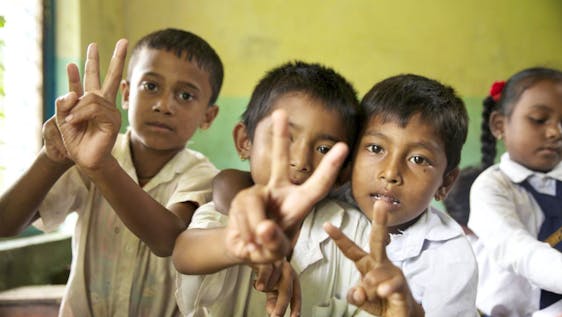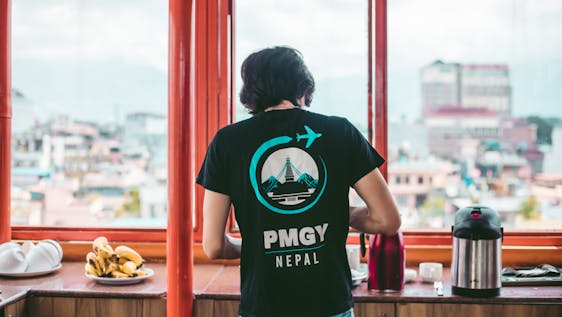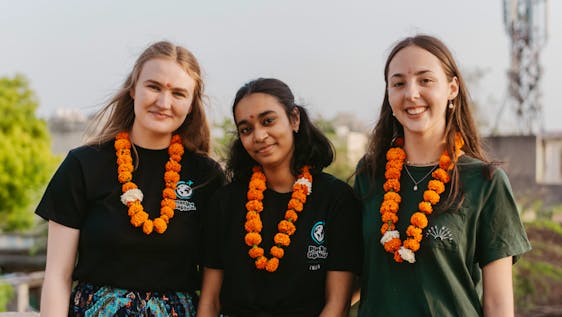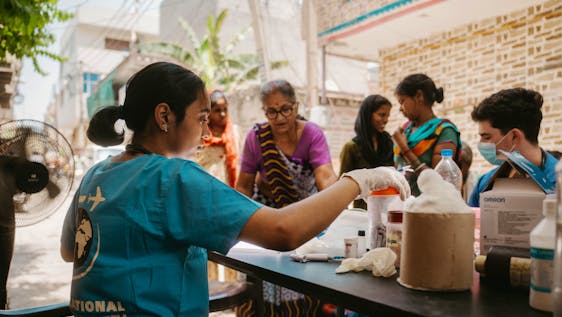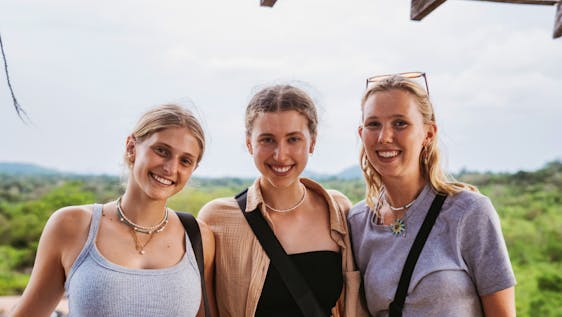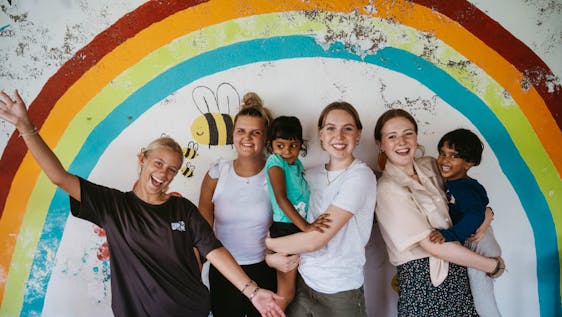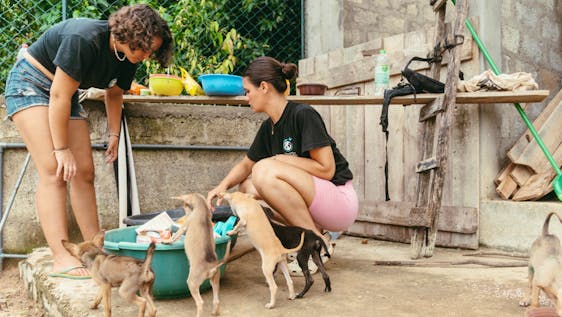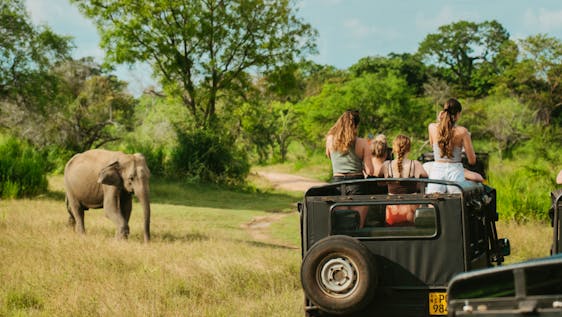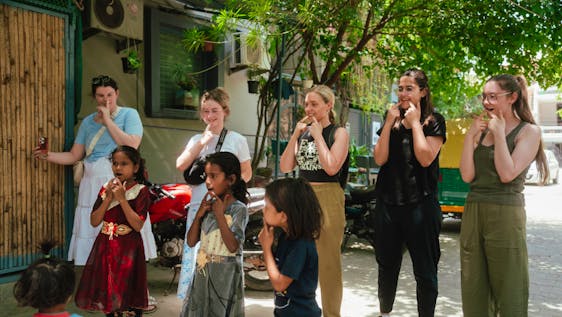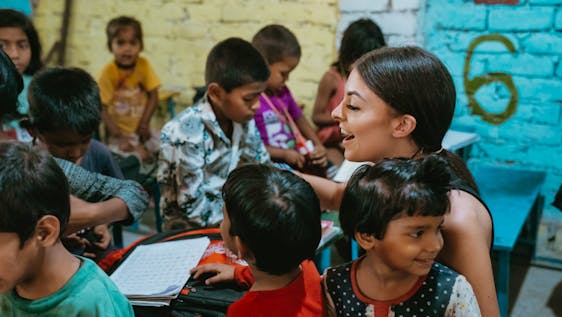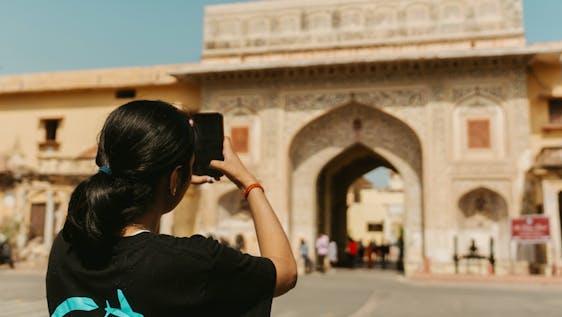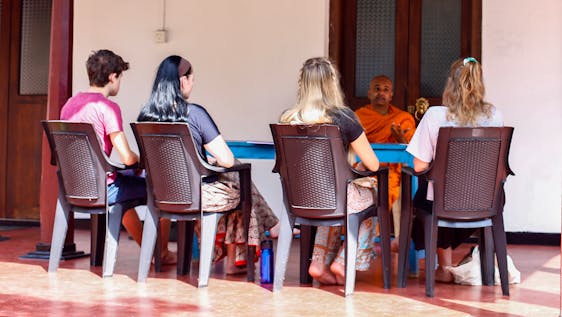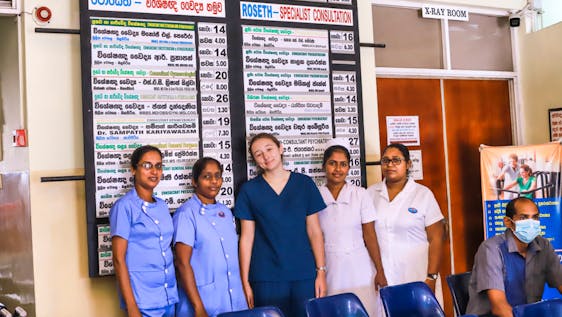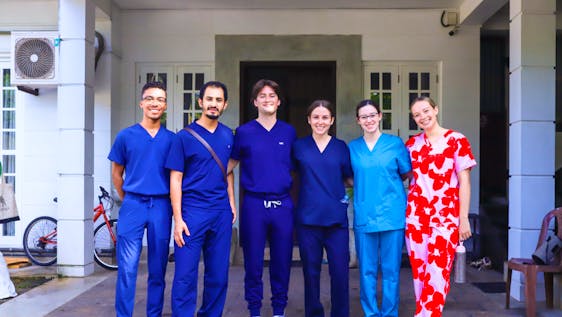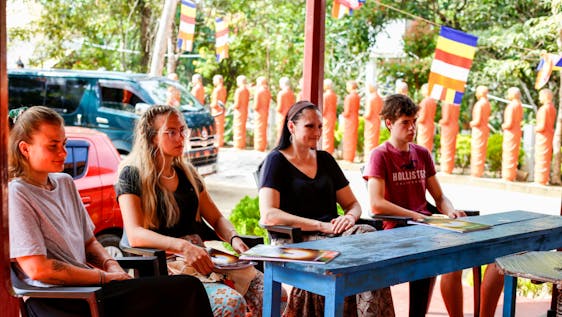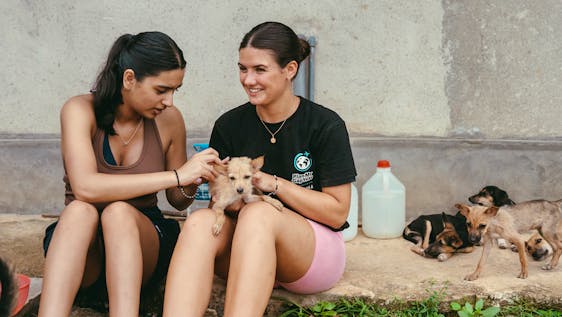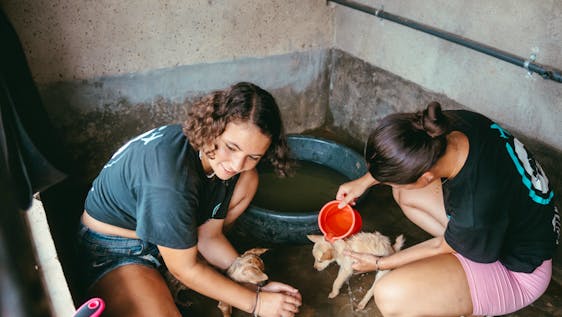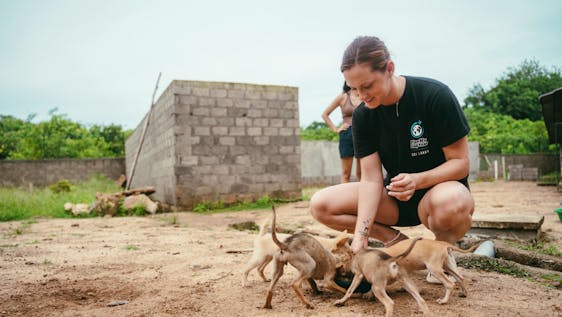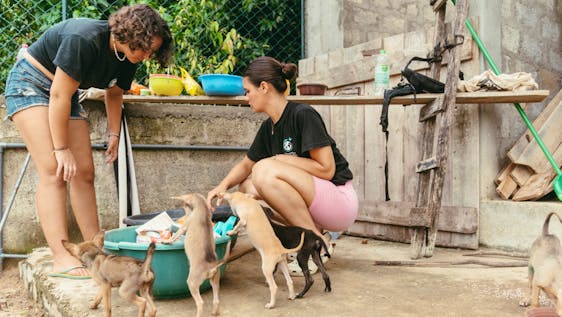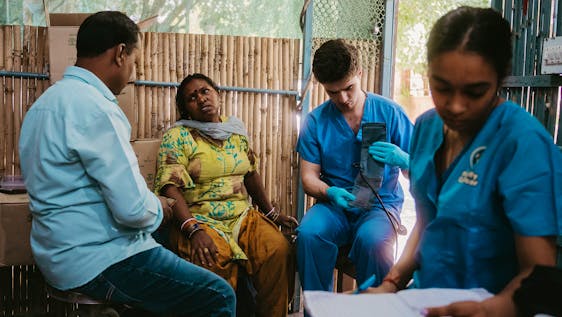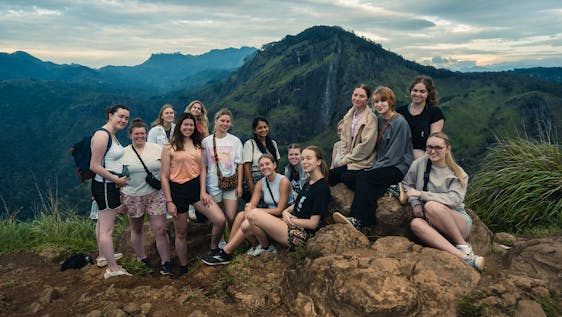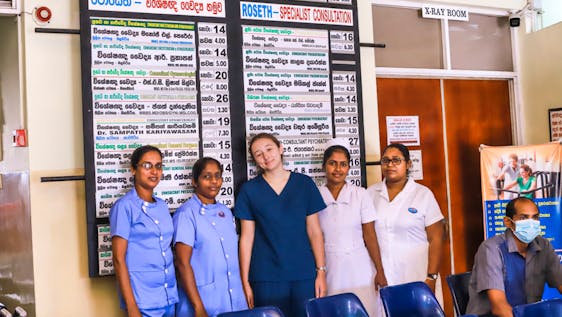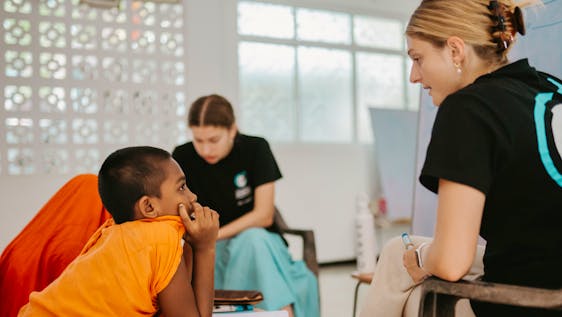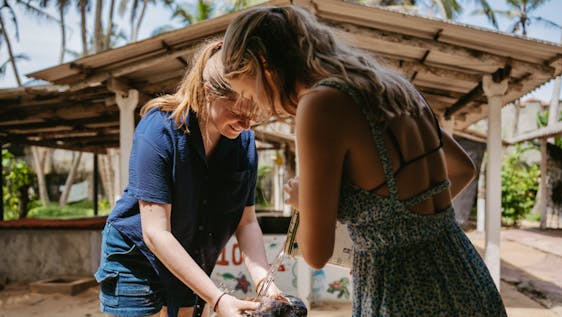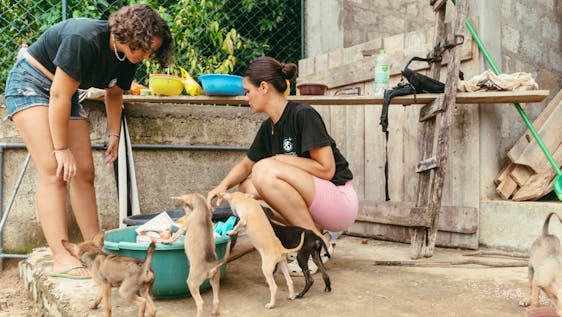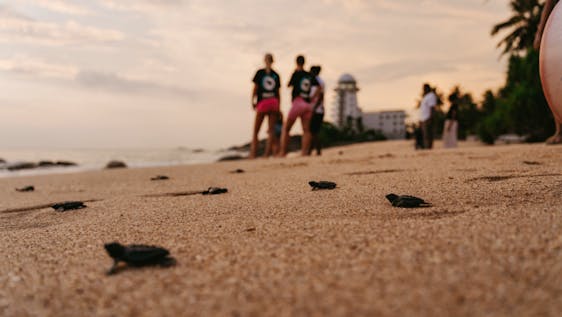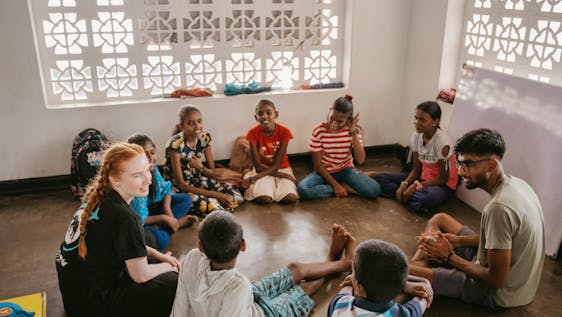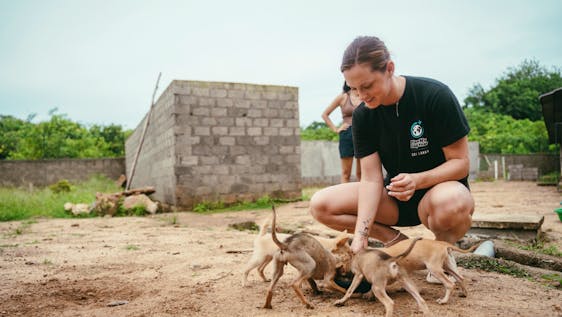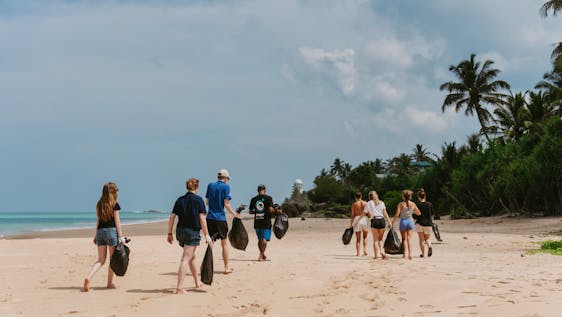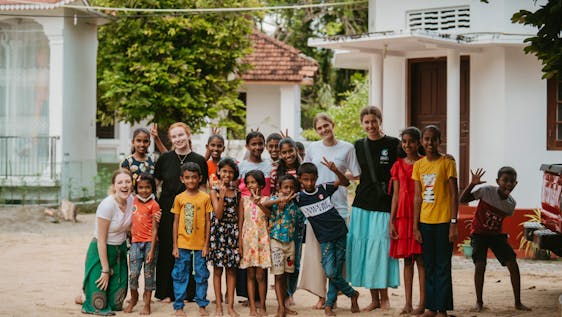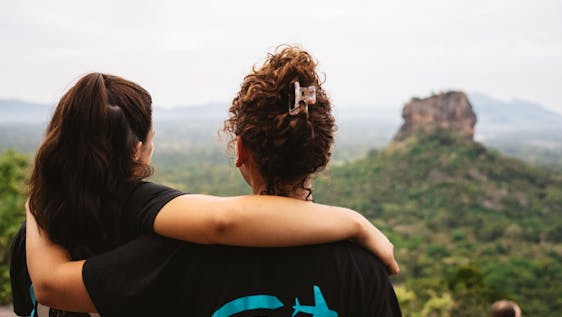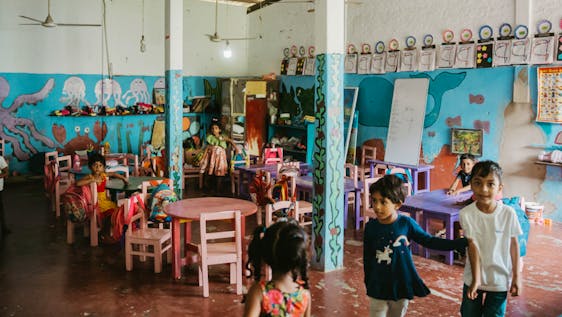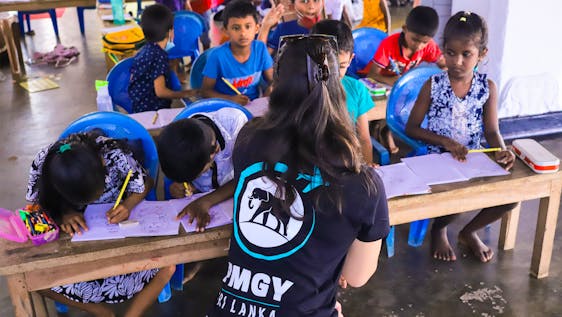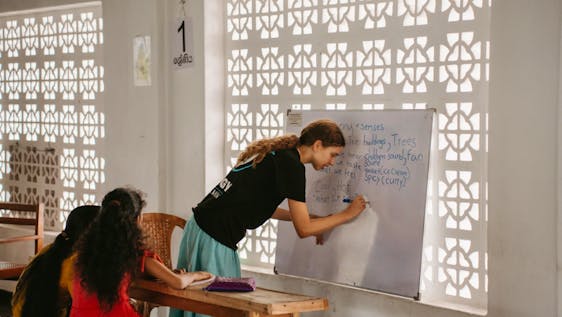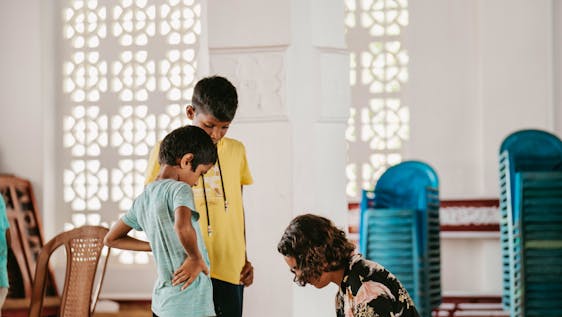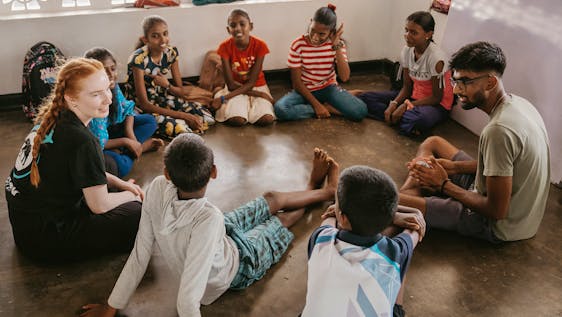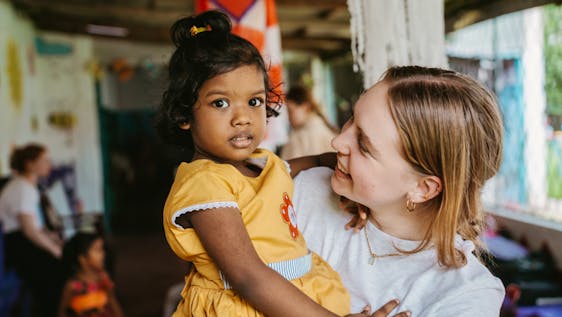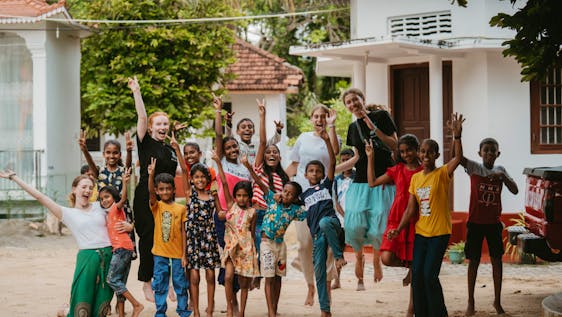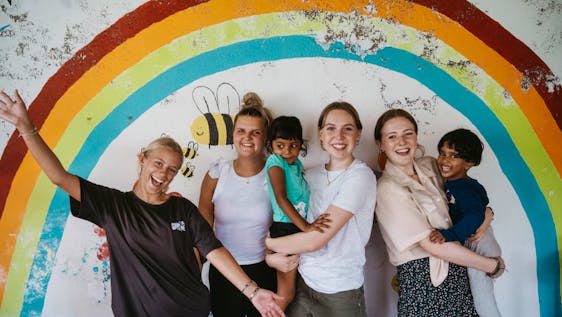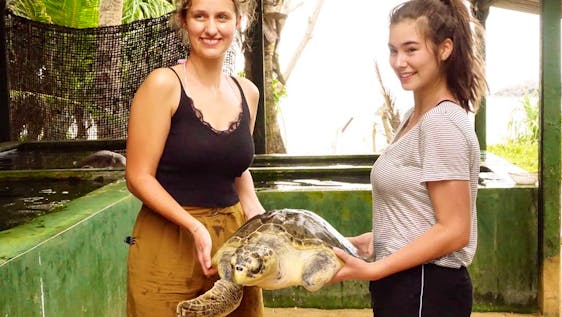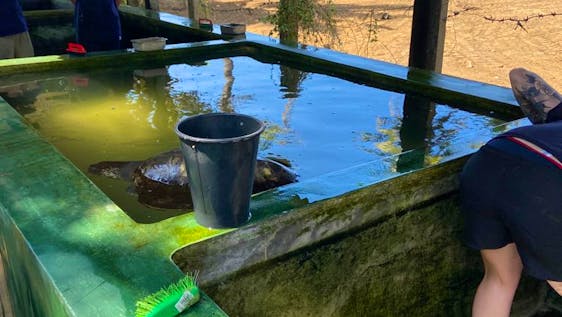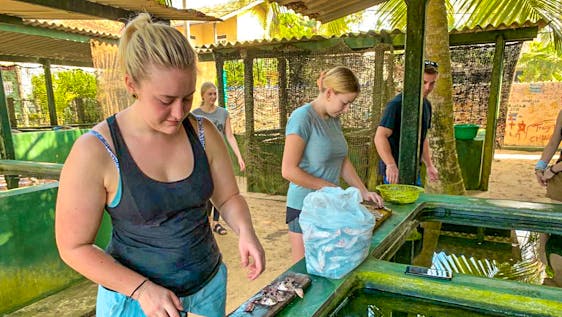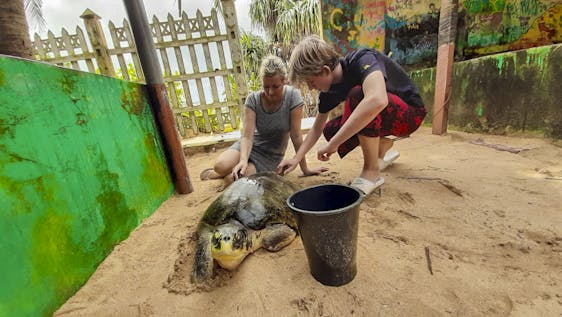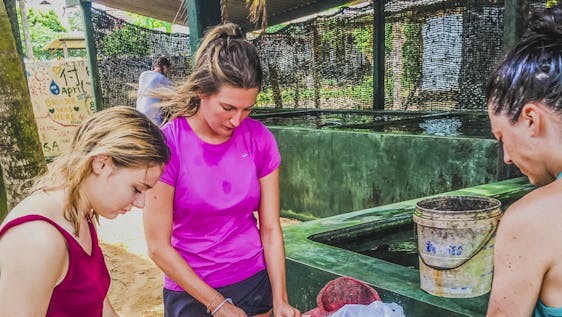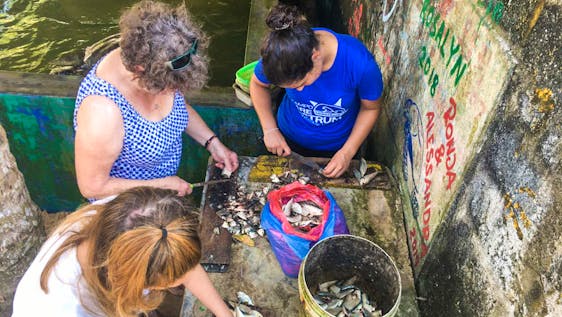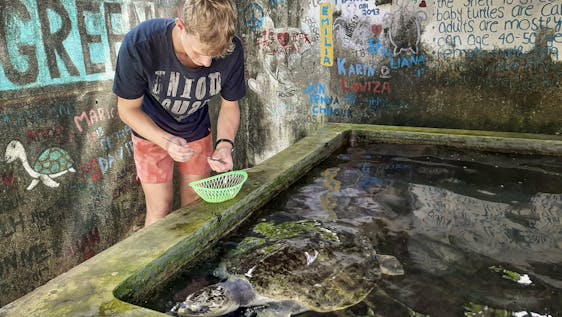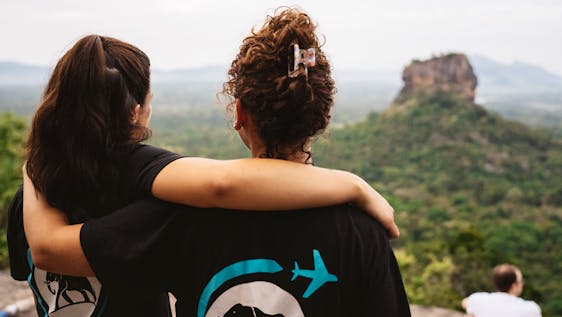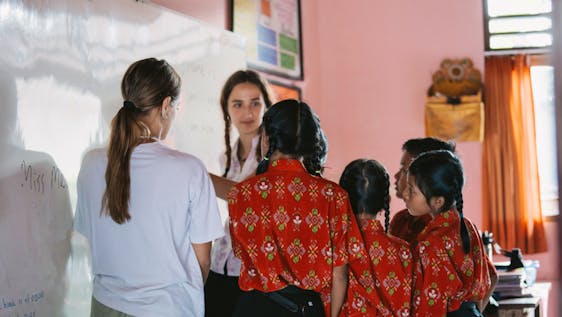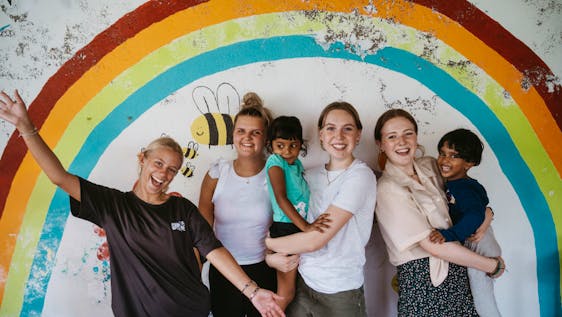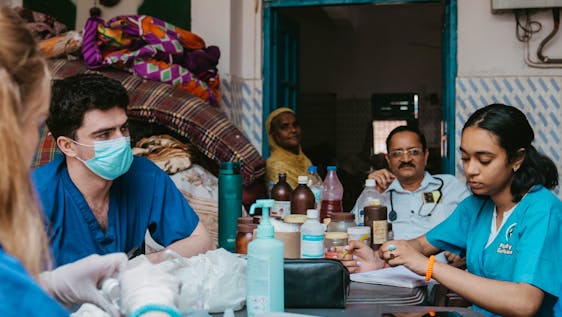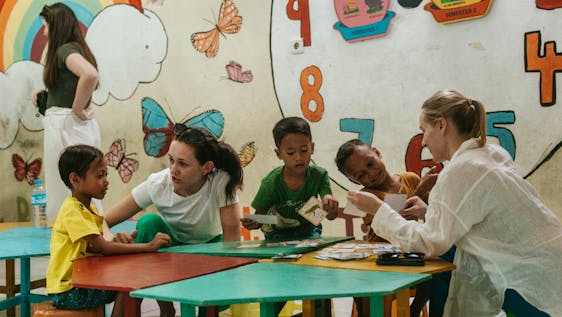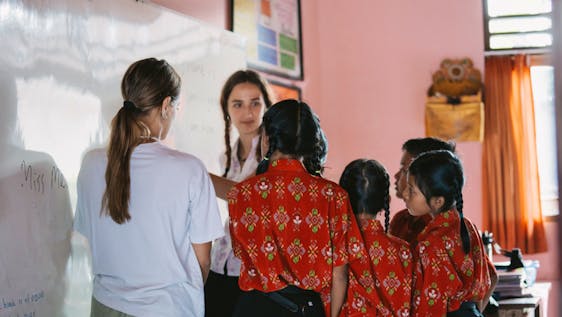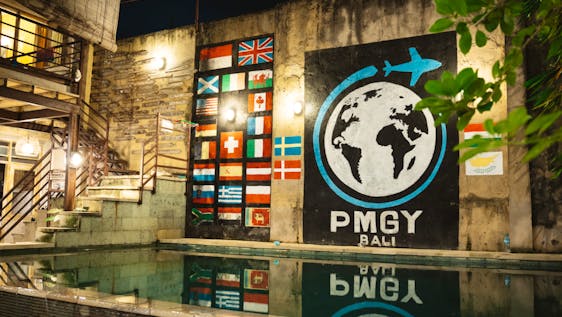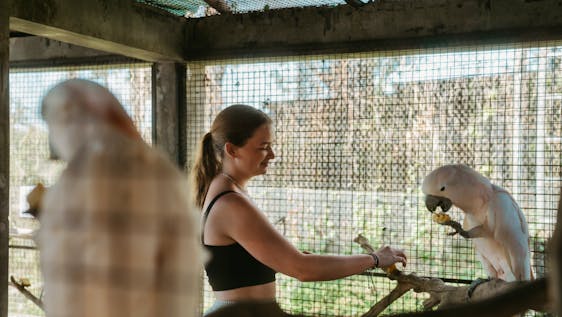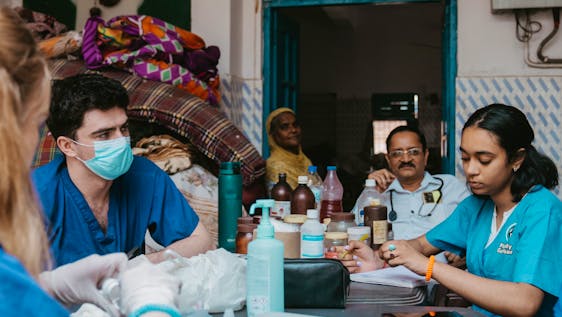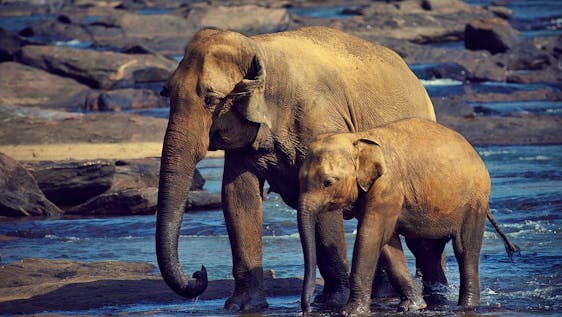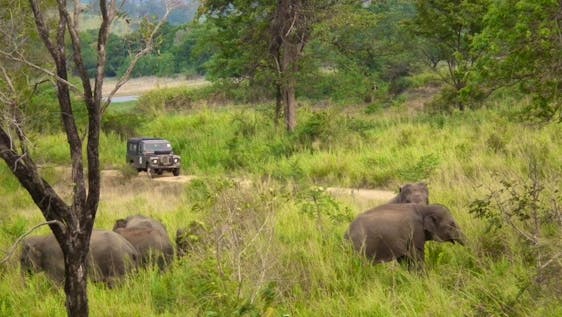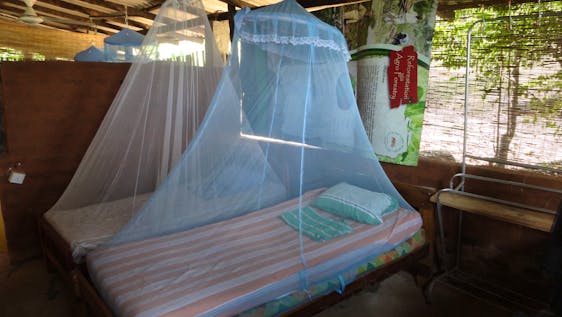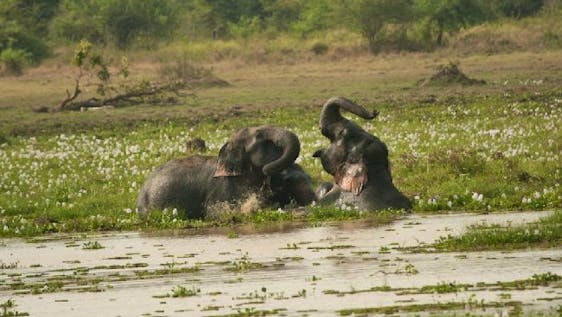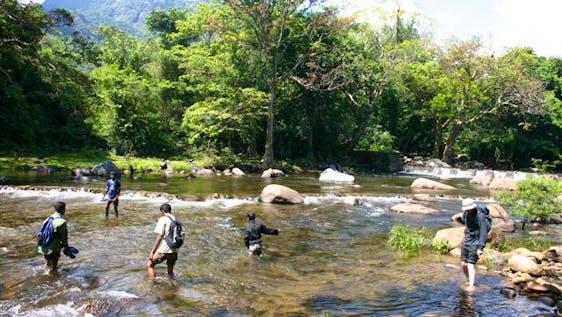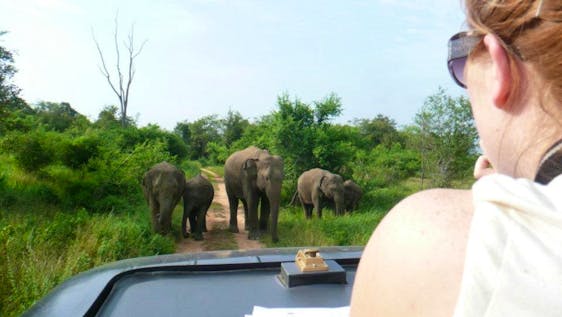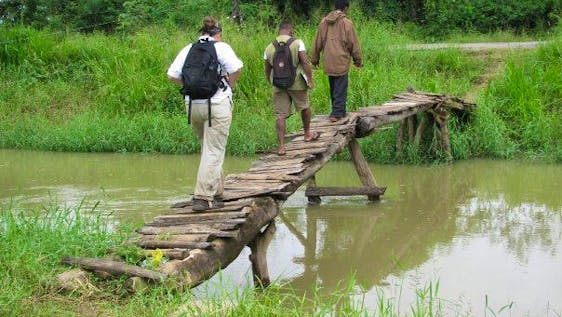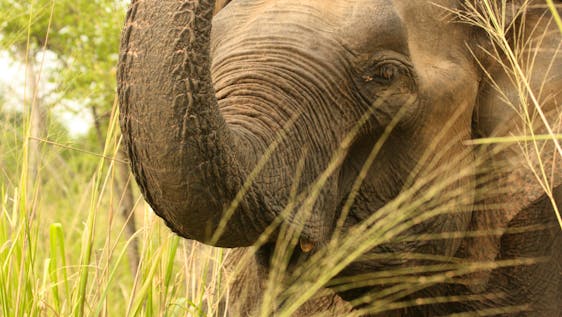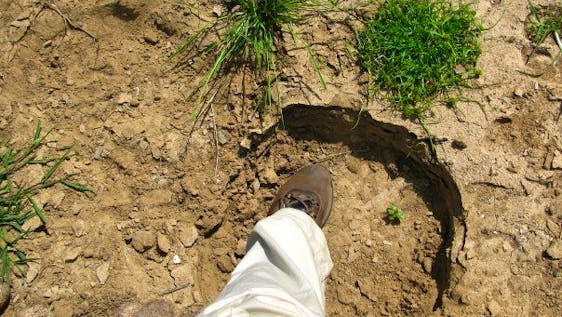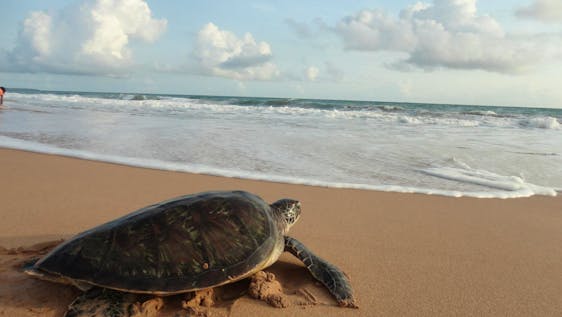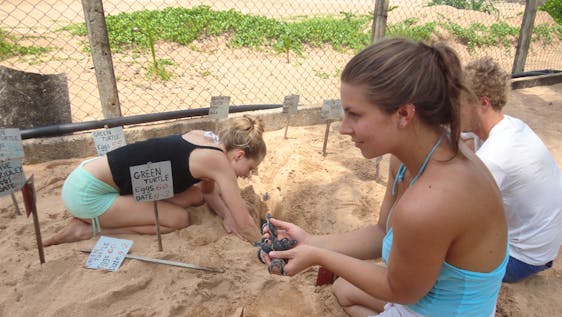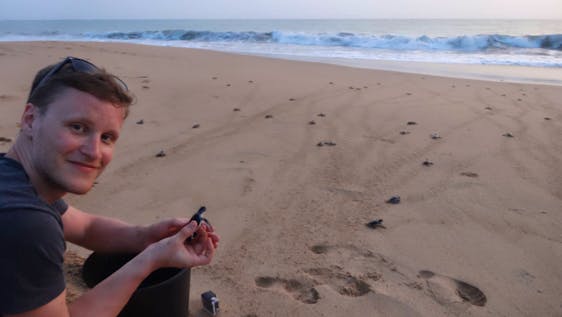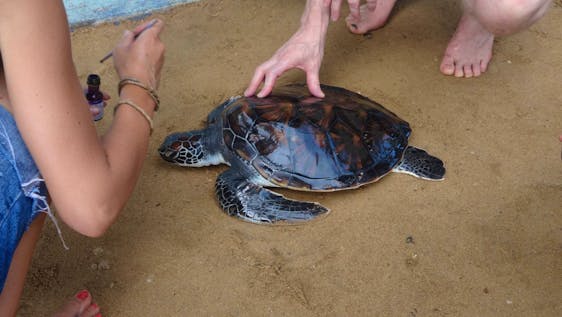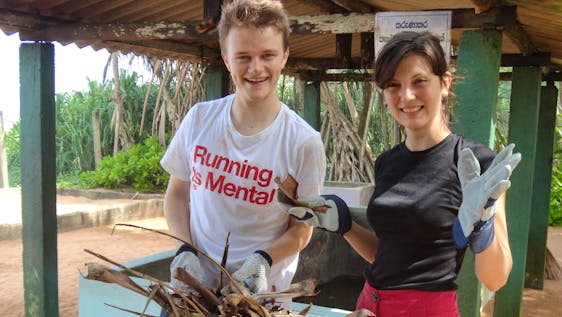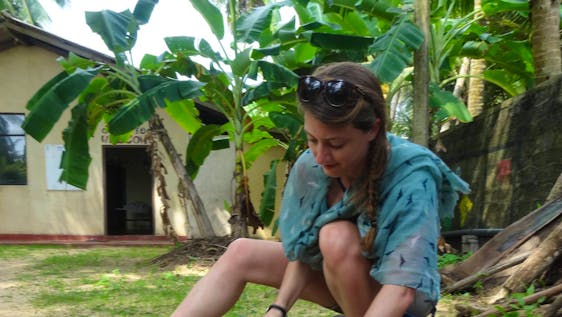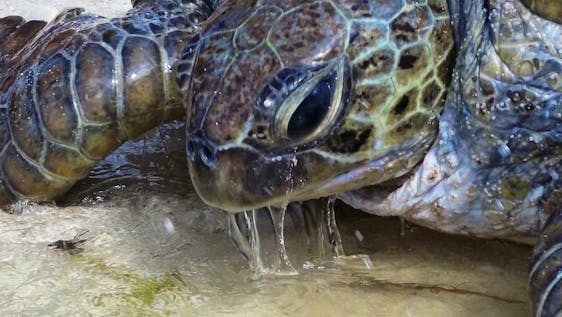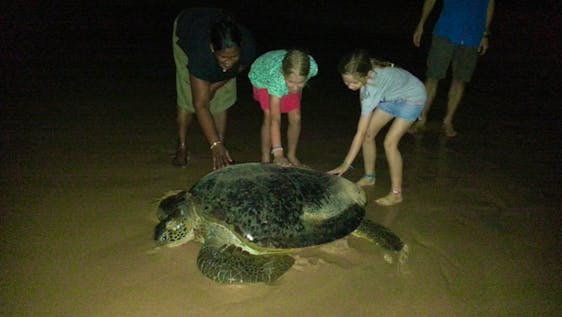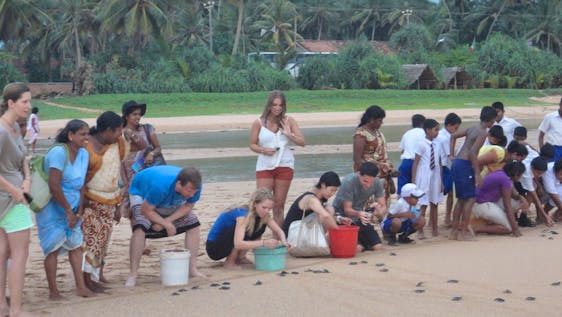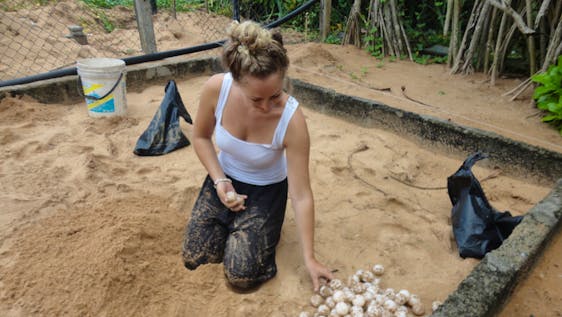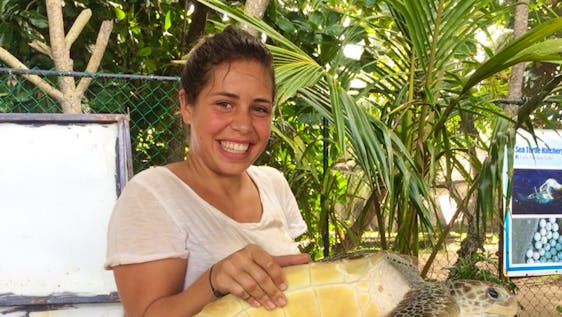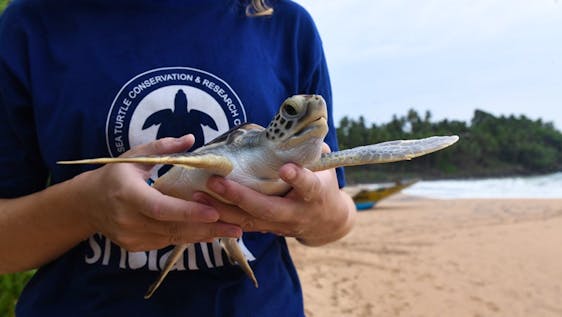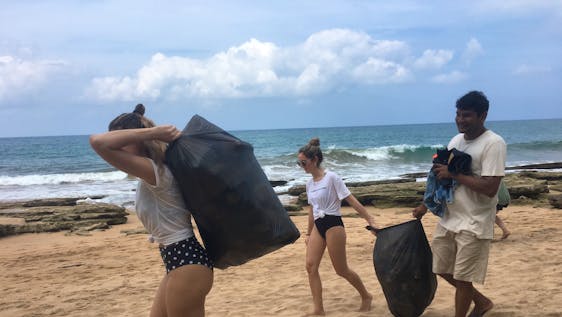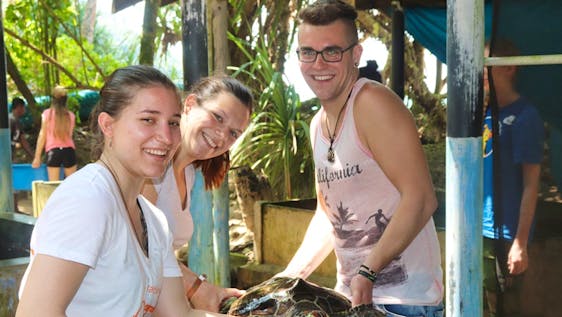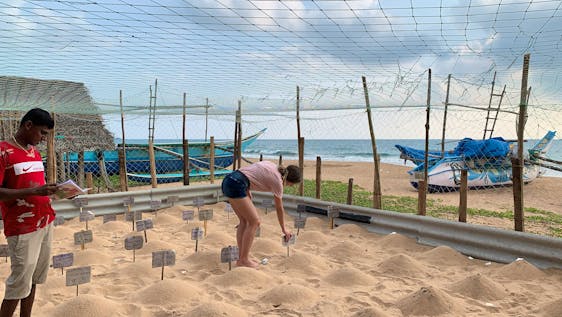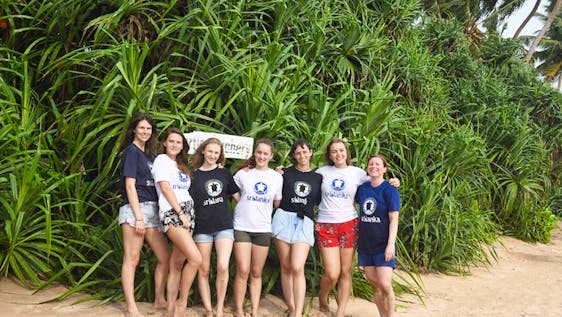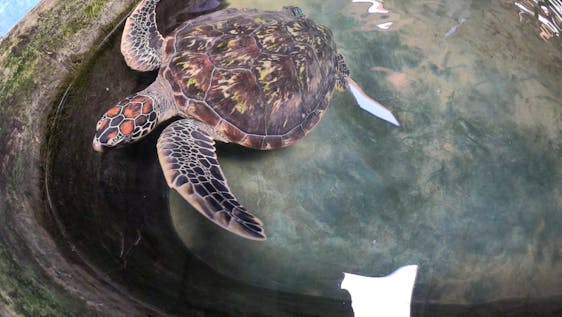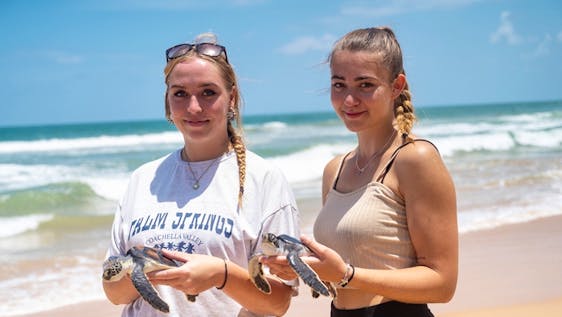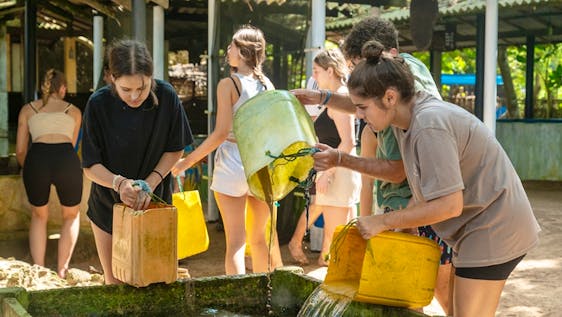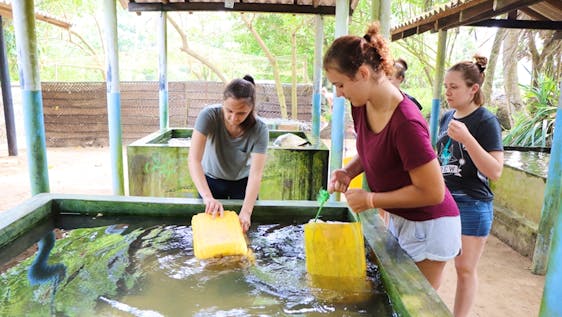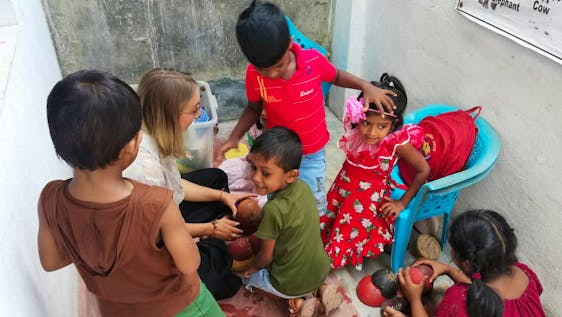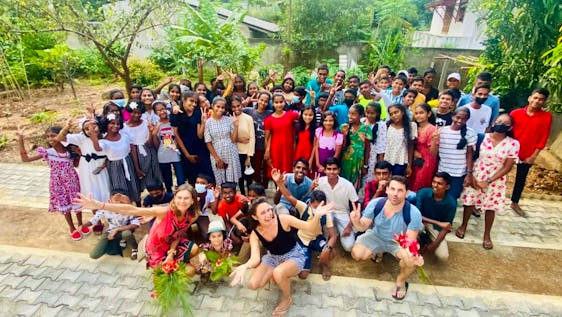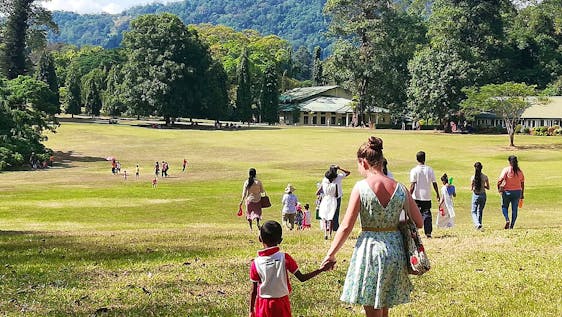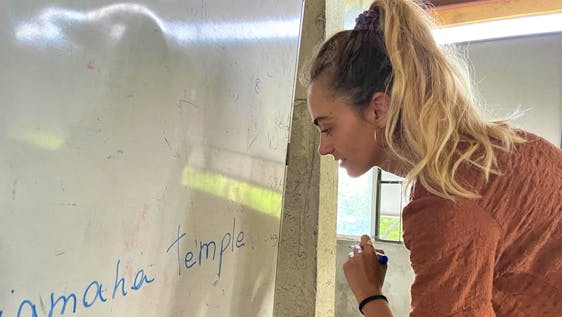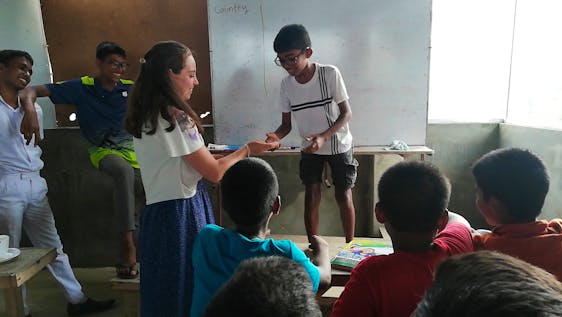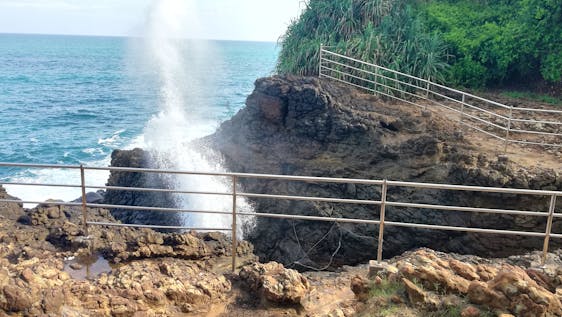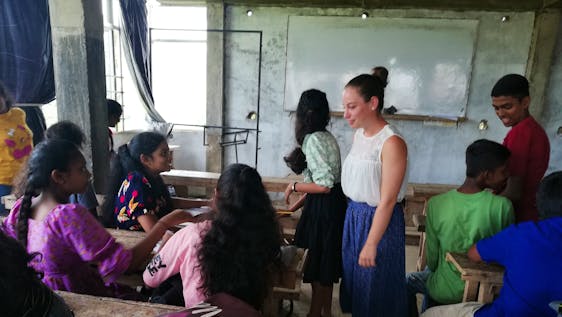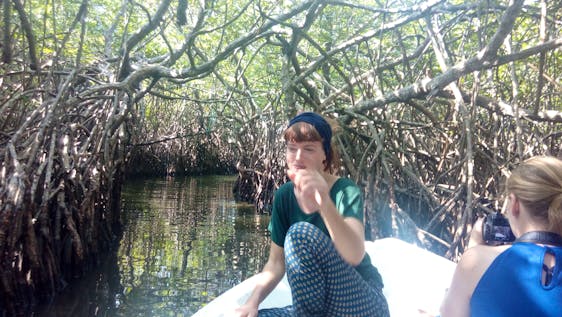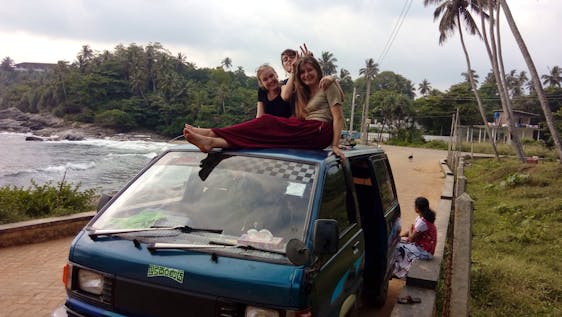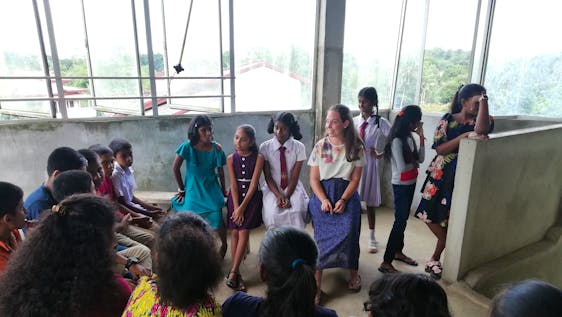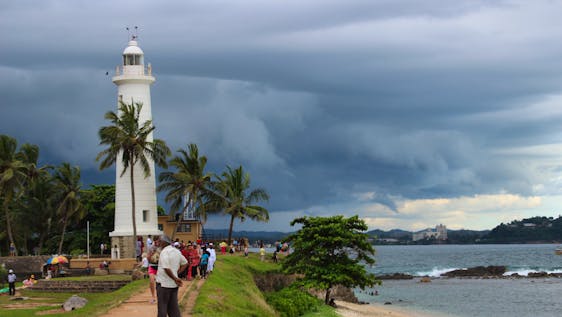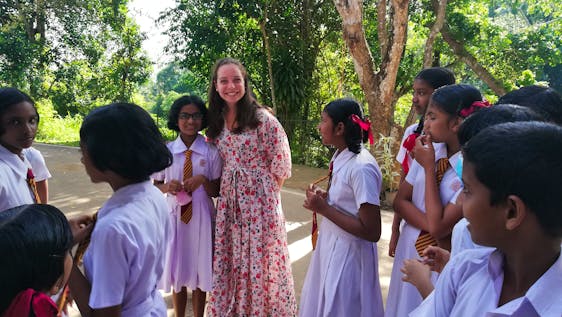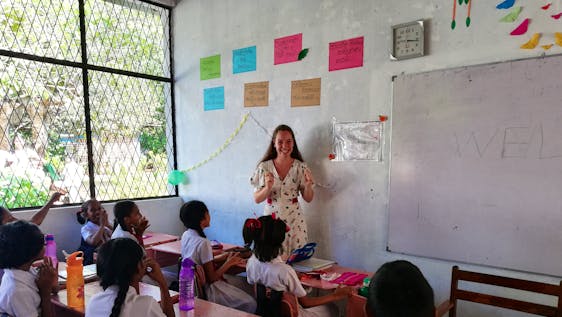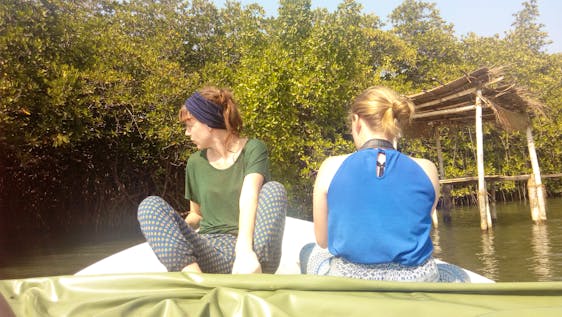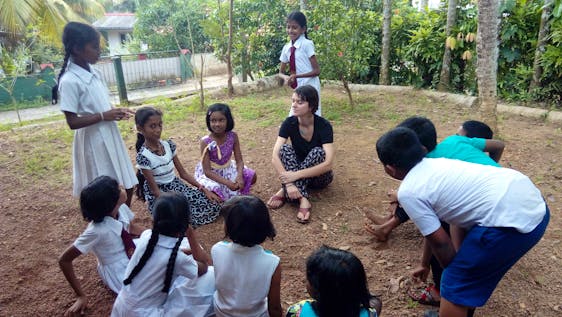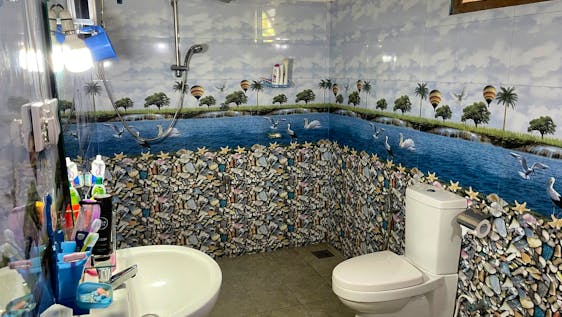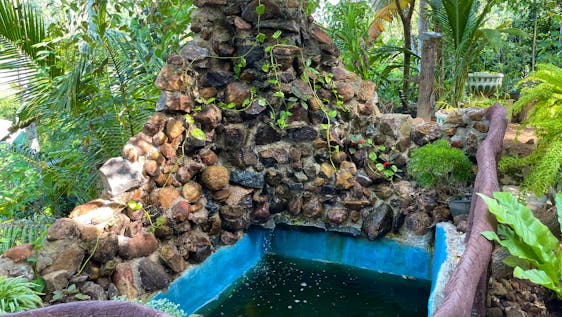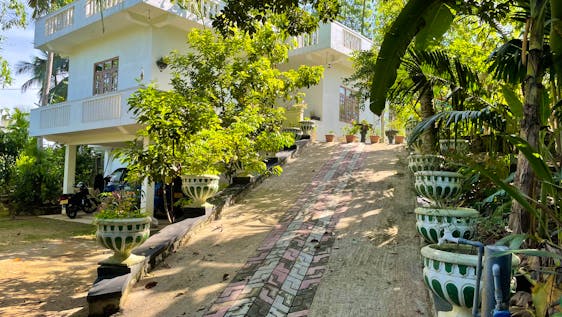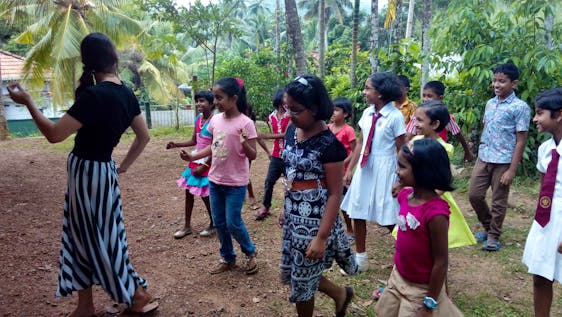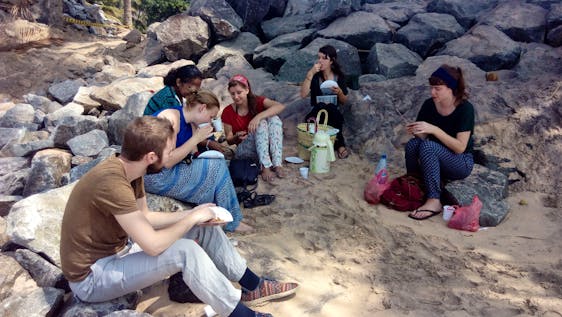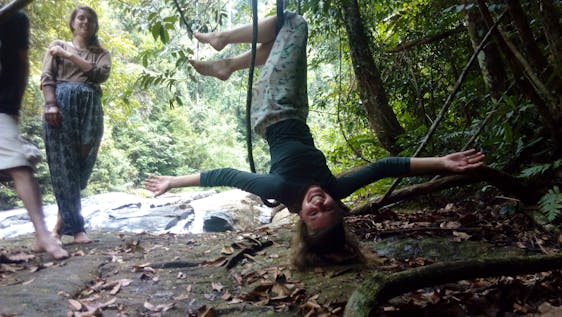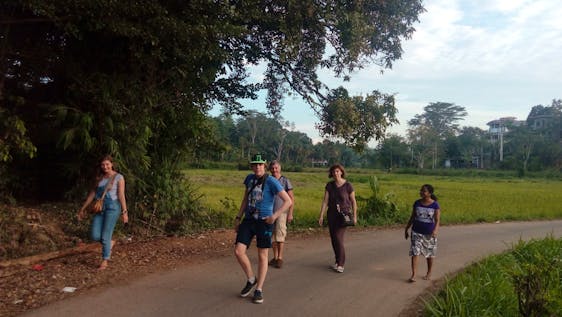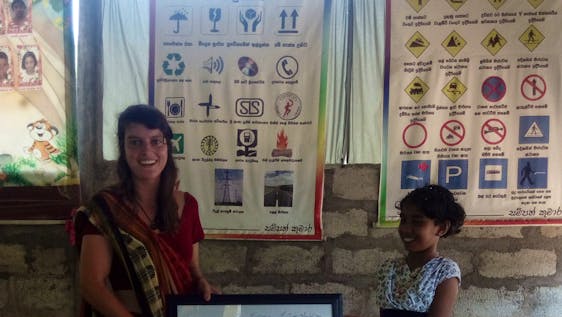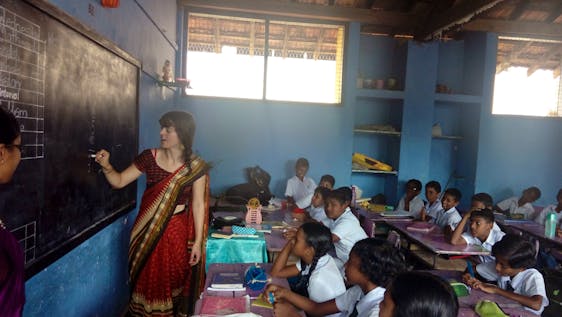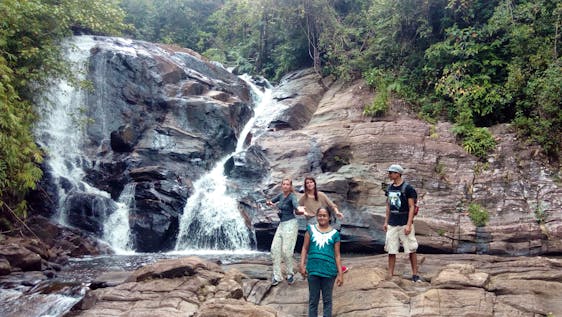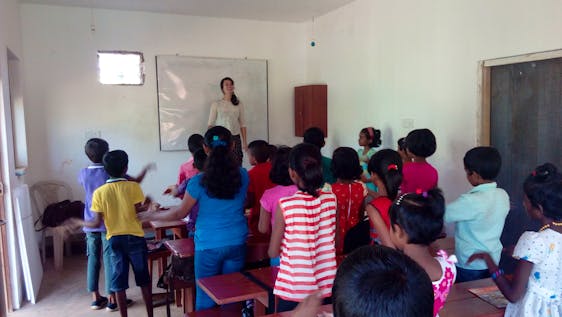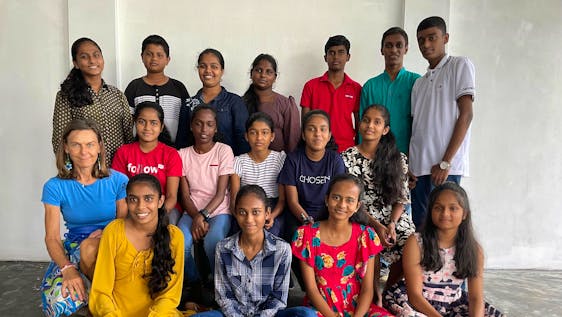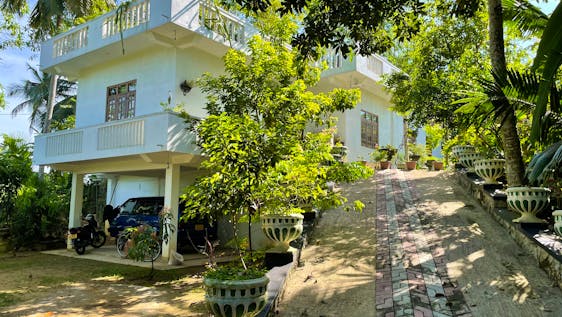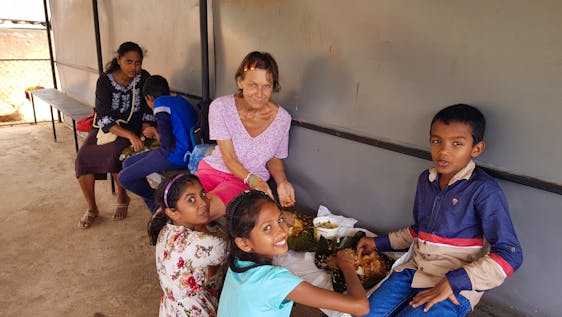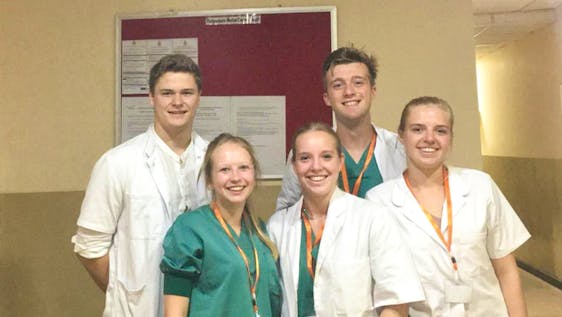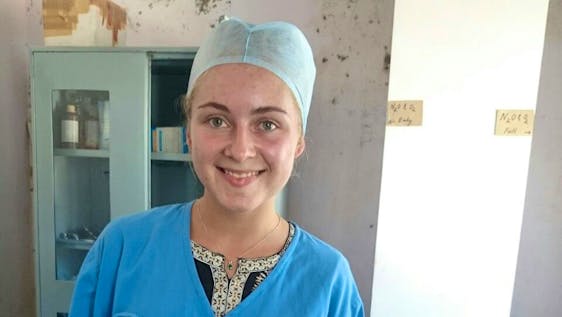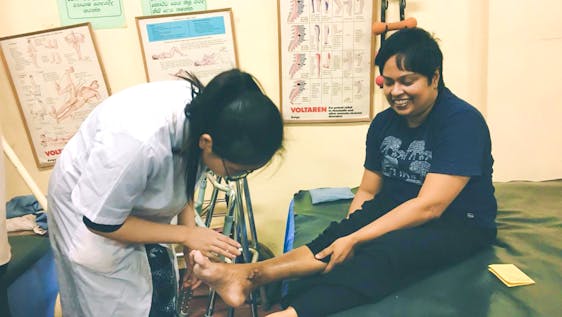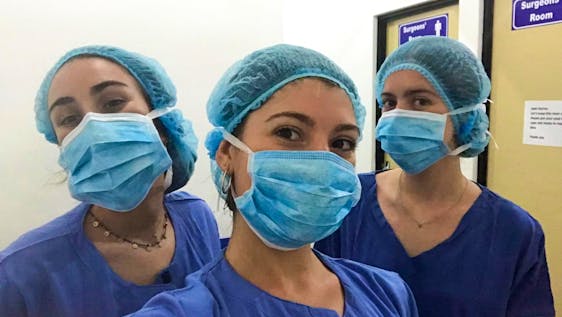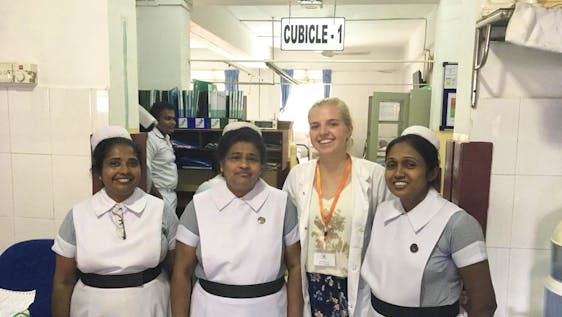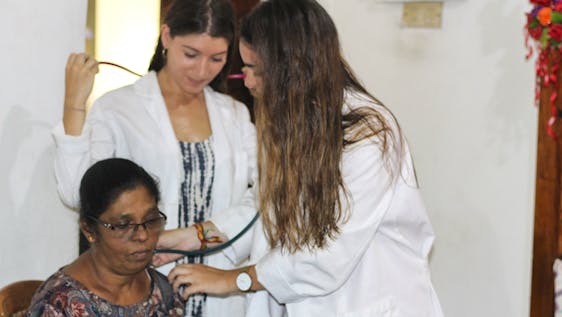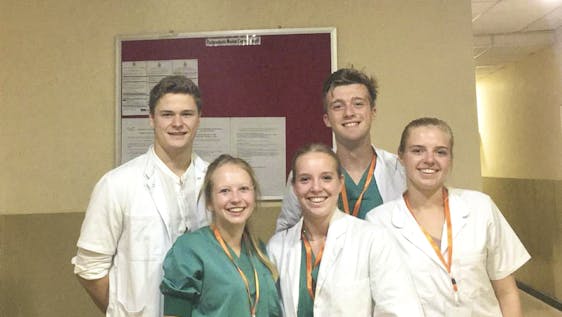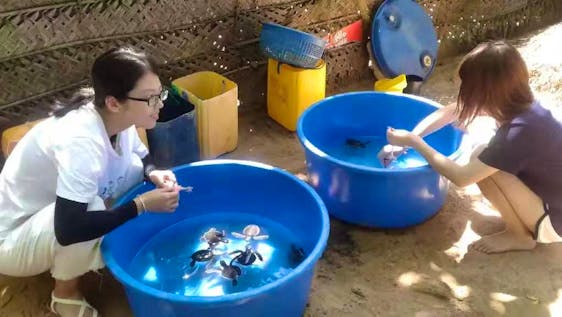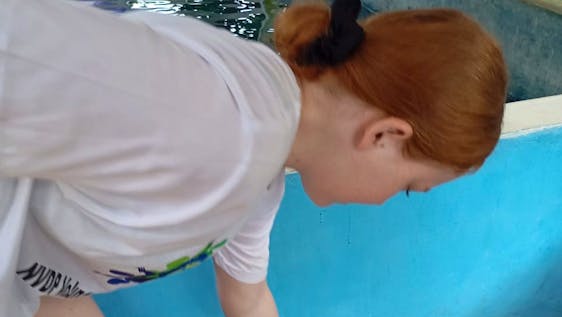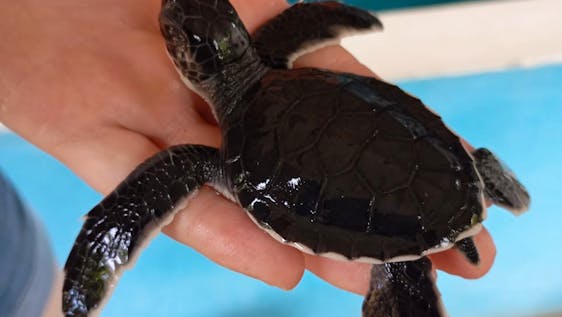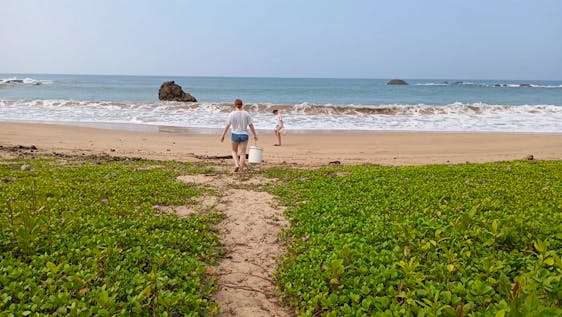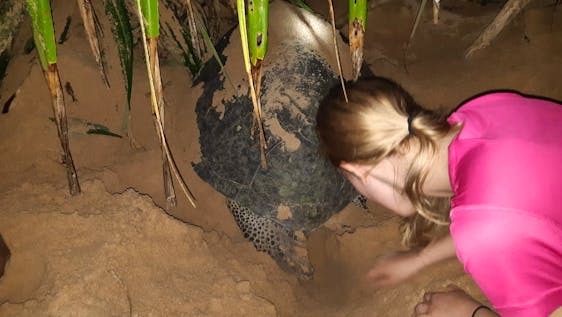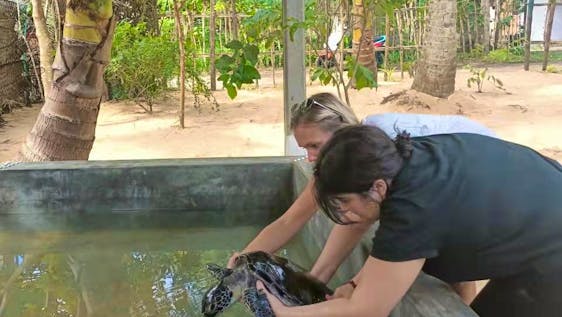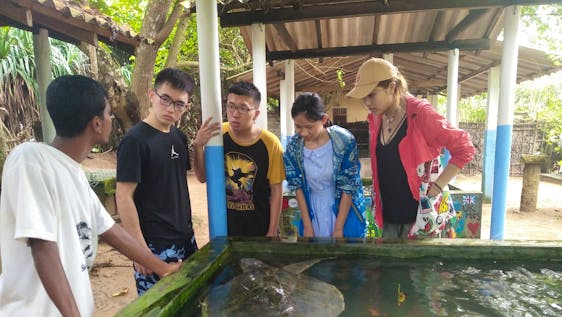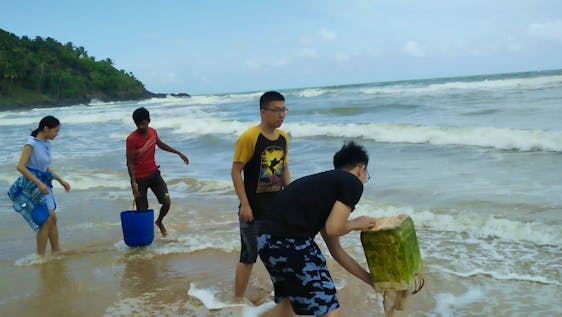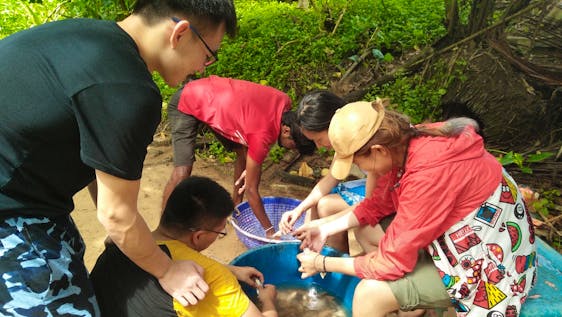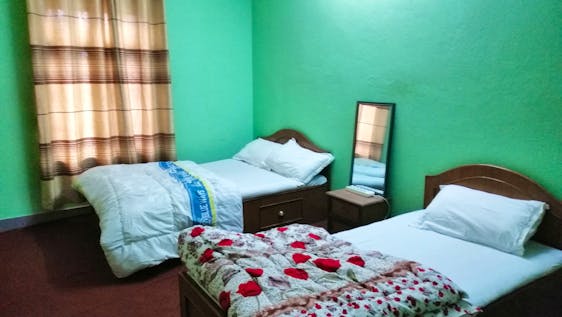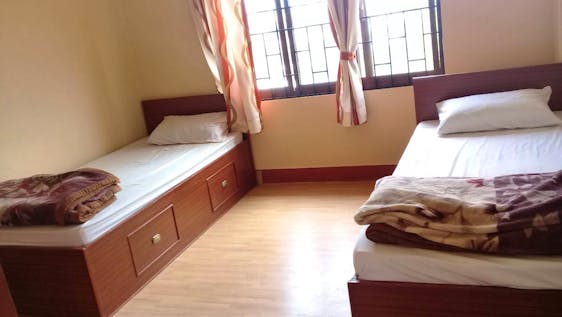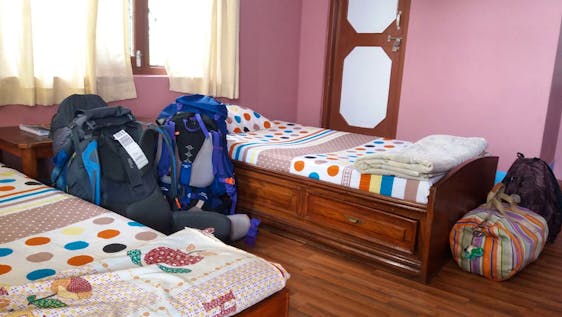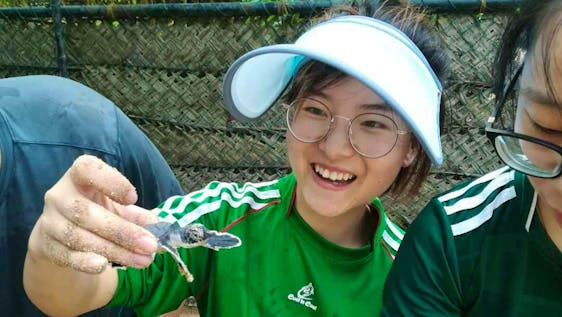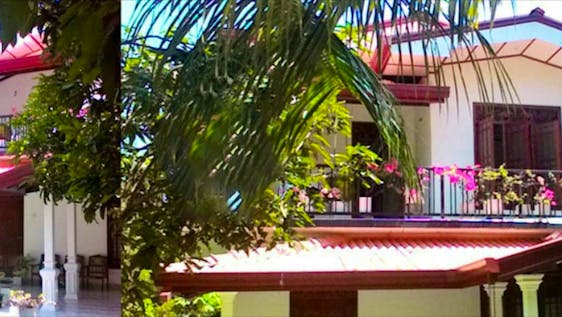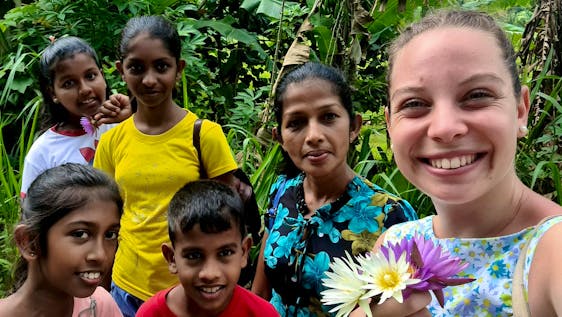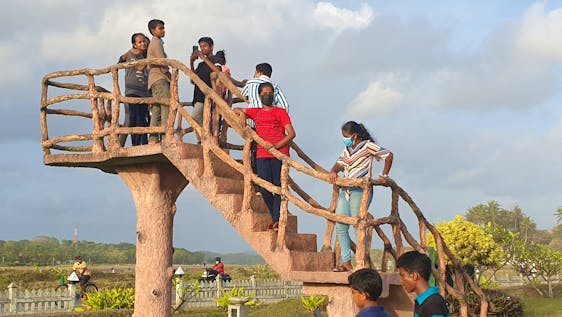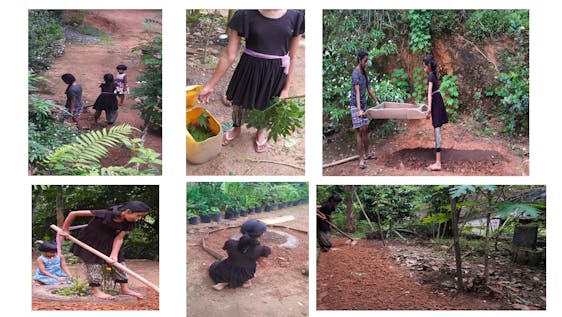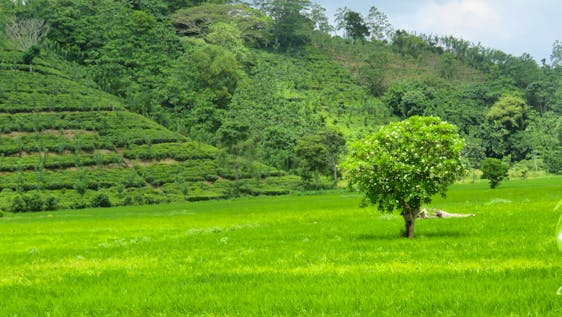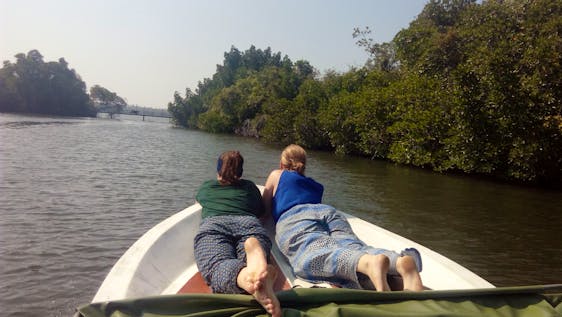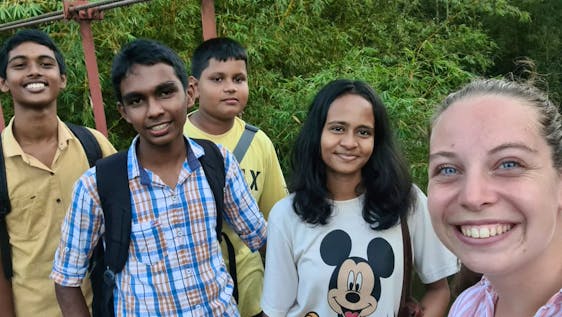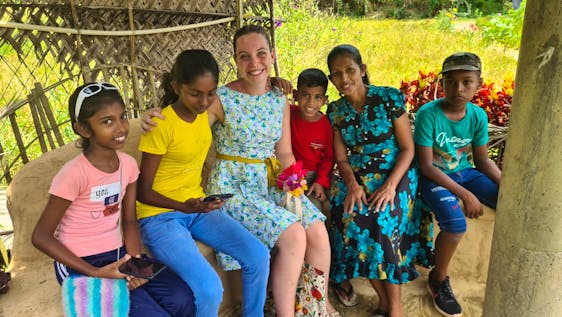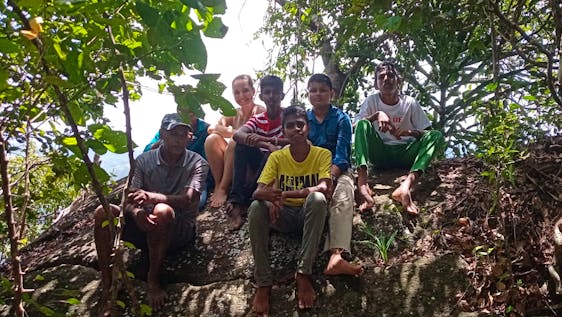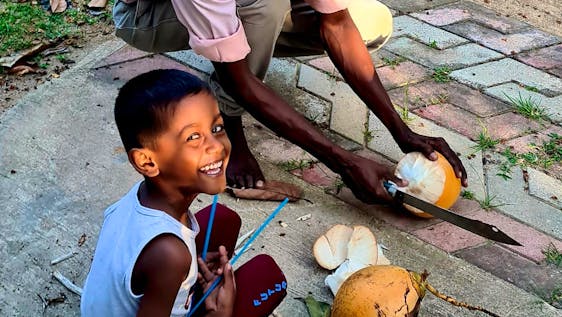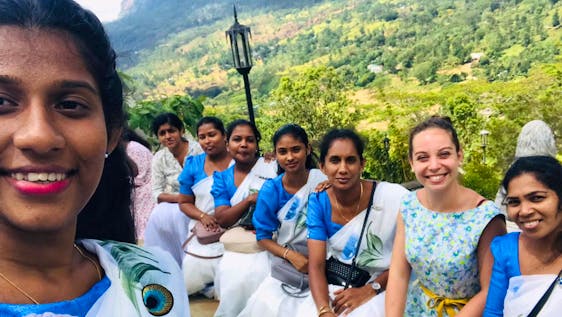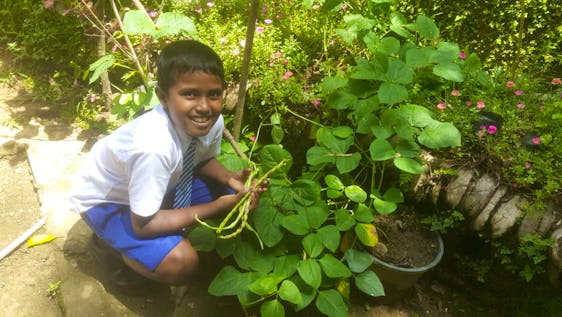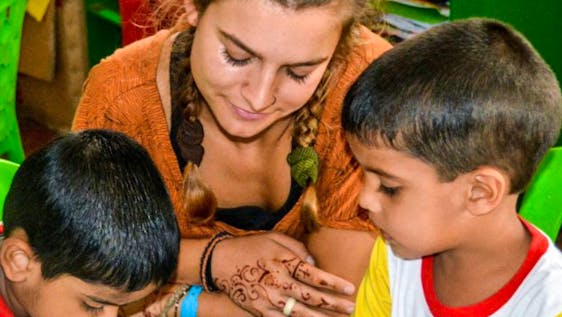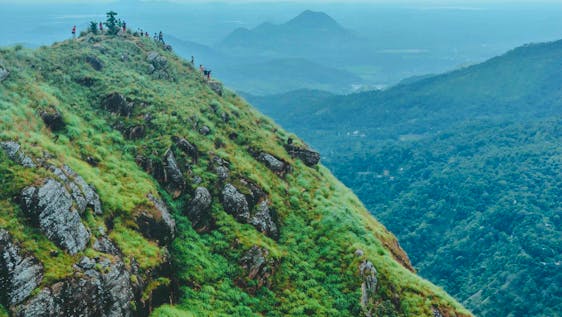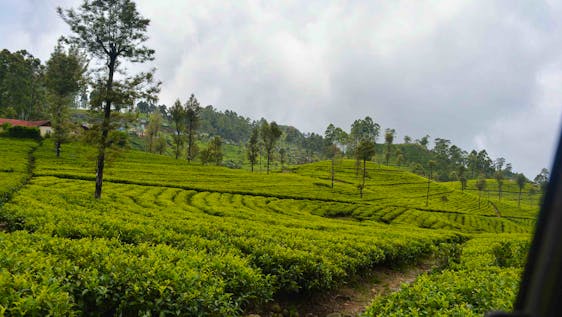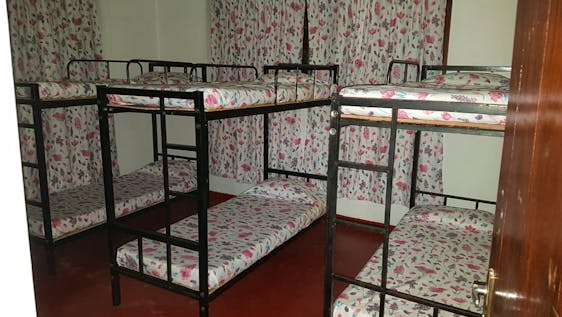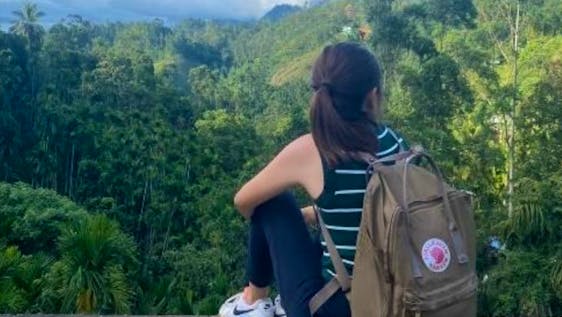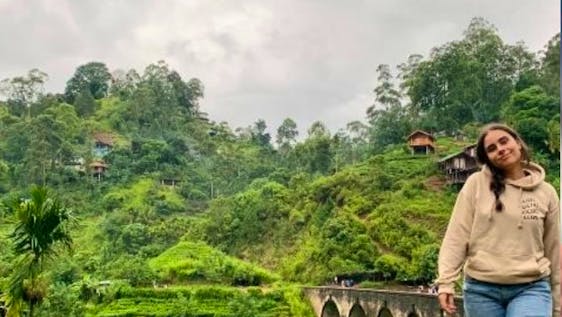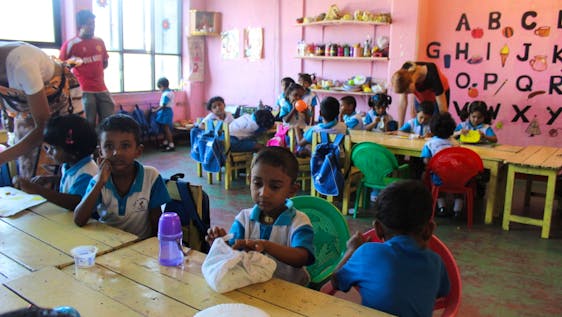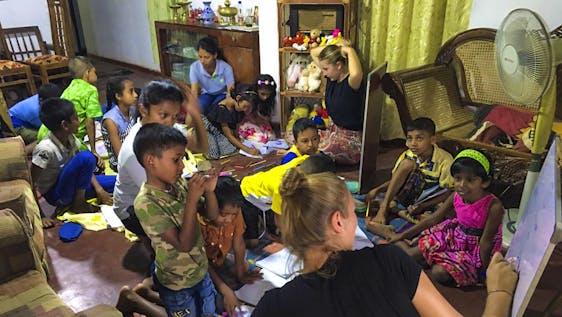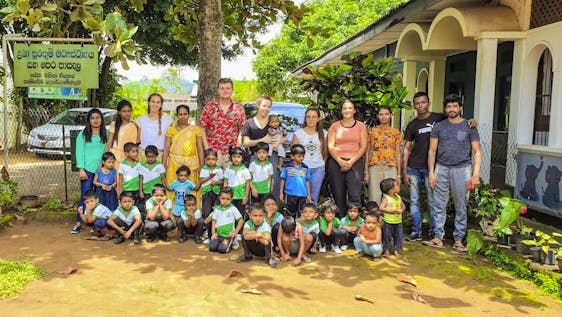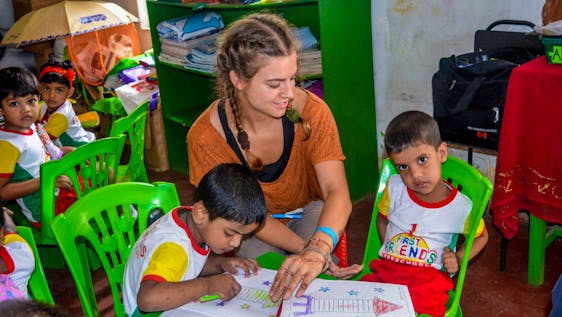Volunteer in Sri Lanka
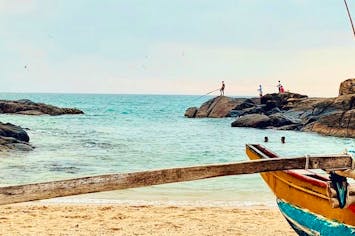
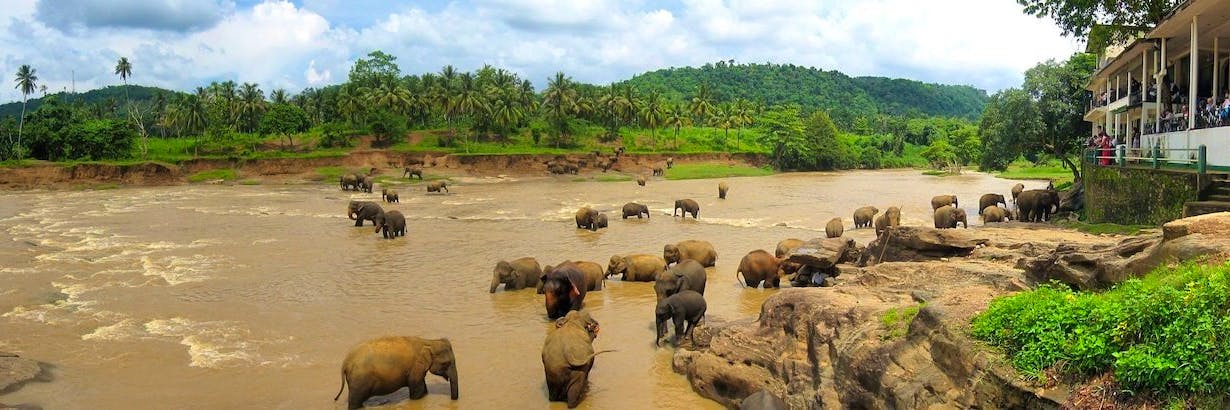
Volunteer work in Sri Lanka
The Democratic Socialist Republic of Sri Lanka is a stunning island country that is located in the Southern part of Asia. Sri Lanka is uniquely situated with marine borders to both the Maldives and India. However, this country is not just known for its maritime beauty, but its rich cultural diversity and its extremely religious people as well. Sadly, poverty continues to be a huge problem in Sri Lanka despite all of the improvements that have already been made by the country. While Sri Lanka pretty much compares to the literacy rates and life expectancy of the developing world, it is a rather poor country even by South Asian standards.
In turn, this means that your volunteer work in Sri Lanka will prove to be all the more meaningful here. If you are thinking about joining one of the volunteer programs in Sri Lanka, we would like to help you decide whether this could be a great fit for you. Find out about the various volunteer projects that would love help from volunteers and let us tell you everything that you need to know about volunteer work in this great country!
Where help is needed most
As a prospective volunteer in Sri Lanka, you have a big decision to make. Which line of voluntary work is right for you and which one of our selection of volunteer projects will you be applying for? We would certainly like to encourage you to not only pick whichever project you are most interested in but to also think about what skills you bring to the table as a volunteer in Sri Lanka. After all, your volunteer project is going to rely on your unique skills in order to make a difference. We will tell you all about the different volunteer jobs and projects you can do in Sri Lanka.
Animal and wildlife conservation
If you love working with animals, becoming a wildlife conservation volunteer in Sri Lanka will be a dream come true for you. Depending on which conservation project you sign up for, you will either be stationed somewhere near the ocean or in the middle of the country.
As a wildlife conservation volunteer in Sri Lanka, your hands-on work will certainly be required. You can really make a difference at a conservation by tasks such as:
- helping out at an elephant sanctuary in Sri Lanka
- monitoring the local turtle population
- helping baby turtles make it to the ocean safely
- maintaining the project area
Elephant conservation in Sri Lanka is a particularly important volunteering aspect. Listed as endangered by the IUCN, the population of the Asian elephant has decreased by 50% over the last three generations. The threats that mainly cause such a drastic decline are the loss of habitat, habitat degradation, fragmentation and poaching. Thus, for you as an elephant conservation volunteer, it is important to not only support the work with the elephants but to also educate the local villages about human-elephant conflict resolution.
On top of the actual conservation work, volunteers might be asked to take part in various ecotourism activities, which are an additional way of raising funds for various volunteer projects. Furthermore, volunteers can contribute their help by teaching locals about the importance of an animal conservation and elephant sanctuary in Sri Lanka. This way you use your love for animals to do something meaningful and to create a sustainable human-animal relationship.
Teaching English in Sri Lanka
If you are passionate about education, then Sri Lanka is the perfect place for your volunteering journey. There will be plenty of opportunities for you to teach English as wells as other subjects. As an education volunteer in Sri Lanka, you will likely be teaching poor children or adults and helping them to further develop their English language skills. Your voluntary English teaching tasks will consist of:
- preparing proactive and engaging lessons
- leading your own classes
- running games and activities with the children
If you want to make sure that these children and people stand a chance in an increasingly global economy, volunteer programs in Sri Lanka in this capacity will be a great choice. Moreover, if you are planning on becoming a teacher, you will get firsthand experience about what it means to be a teacher.
Medical and healthcare
If you are an aspiring nurse, doctor, or mental health counselor, there are volunteer projects that could use your help. From Ayurvedic to traditional medicine, there is much volunteers can do to improve the overall health of the Sri Lankan population. Of course, volunteers will work alongside and be supervised by trained medical and healthcare professionals. Your level of hands-on involvement is dependent on your medical experience, duration of programme and willingness to get involved. During your volunteering stay, your helping hand is needed in one of the following departments:
- Physiotherapy
- Dental Surgery
- Radiology (x-ray machine and computerised radiology)
- Laboratory
- Phlebotomy
- Inpatient Ward
- Outpatient Ward
Whether you are studying medicine or psychology back at home, this is the perfect volunteer work in Sri Lanka to gain some experiences in the field while doing something good as a healthcare volunteer in Sri Lanka. If you are interested in this field, you will need to pay special attention to the individual requirements of your chosen volunteer project.
Volunteers will likely be asked to prove that they have some kind of a medical or health background before becoming a medical volunteer in Sri Lanka. The doctors will assess the capabilities of volunteers and assign responsibilities accordingly. Those with little or no medical experience will assume a largely observational role. After all, the goal is to do cure and provide for the ill and to nurse them back to health.
Support community services
Given that widespread poverty continues to be a great concern for many Sri Lankans, you might like to consider becoming a community or construction volunteer. Depending on which project you choose, you will be asked to complete diverse tasks with the goal of aiding the local community.
Your help as a construction volunteer in Sri Lanka is very much required. There are several public facilities that are in desperate need of structural improvement. Volunteers could be working on:
- government buildings
- schools
- hospitals
- orphanages
- Buddhist temples
Help to carry out important renovation work that will benefit the community as a whole and do your bit to leave a sustainable handprint in Sri Lanka!
You might also decide to work at local one of the volunteer programs in Sri Lanka that are concerned with local orphanages, where you can give the children new hope. Just having someone that is taking the time to engage with them on a personal level and that cares about them will certainly mean the world to these children.
Before deciding to do voluntary work at an orphanage in Sri Lanka though, you need to make sure that you understand what your tasks are going to be and what you need to expect. The children you are going to be working with have not necessarily lost their parents to death. Many of these children have experienced violence or abuse and are traumatised. For this reason, it is essential that volunteers MUST have appropriate skills. If not you could be putting yourself and the children at risk.
If you have always wanted to make a difference in the life of a child and have some previous experience in working with children, this is your opportunity to do so.
Cost of living
The suggested daily budget for living as a volunteer in Sri Lanka is between US$ 11 and US$ 29. This is an estimate made considering the average price of some of the services you might need and things you might want to buy for your volunteer work in Sri Lanka. It gives you a general overview about how much things cost in this country, so you can be prepared and save the money you will need.
Additional costs you should consider for one of the volunteer programs in Sri Lanka:
- program fees
- flight tickets (find cheap flights to Sri Lanka)
- travel insurance (find your travel insurance)
- fees for your visa
- personal expenses
An exemplary overview on living costs in Sri Lanka (in US$, for one person) is:
Things to know before volunteering in Sri Lanka
As you are preparing for your time as a volunteer in Sri Lanka, we would like to give you some tips as to how you can stay healthy and safe during your time abroad. If you keep the following precautions in mind, you should be good to go. Some of these tips will require you to get active before you leave for Sri Lanka, wherefore we encourage you to take the time to carefully study the following information.
Safety & precautions
As a prospective volunteer in Sri Lanka, you will be glad to learn that this country is a rather safe place. While violent crime rates are extremely low, pickpocketing can be an issue - particularly in tourist areas. As such, we ask you to keep the following five tips in mind:
- Always be aware of your surroundings in crowded public spaces
- Never leave your drinks unattended and do not accept drinks from strangers at a bar or restaurant
- Only use ATMs that are part of a local bank or found in a major hotel
- Do not openly display your valuables while you are out
- Make a copy of your passport and store it in a different place than your actual passport
Culture & religion
As a future volunteer in Sri Lanka, you will find that a lot of different religions are practiced in this country. According to the 2011 census, this is the current spread of religions:
- 70.2% Buddhism
- 12.6% Hinduism
- 9.7% Islam
- 7.4% Christianity
- 0.1% Other Religions/ No Religious Affiliation
According to yet another poll from 2008, this spread makes Sri Lanka one of the top 3 most religious countries in the entire world. During your volunteering journey, you should thus be respectful of the local people's religion, which is especially true at major religious sites.
Health advice
Being far away from home, health is always an important topic. That's why we gathered some health advice for you to keep in in mind. Try to protect yourself from being bitten by mosquitos during your time as a volunteer in Sri Lanka. If you need medical assistance, you can dial 011 269 11 11 to call for an ambulance. Four to six weeks before you leave, you should talk to your primary care physician to make sure that you have all of the vaccinations that are required. The US based health protection agency CDC recommends to get the following vaccinations:
- MMR
- Diphtheria/ Tetanus/ Pertussis
- Chickenpox
- Polio
Also talk to your doctor to find out whether you should be getting any of the following vaccinations before traveling to Sri Lanka:
- Hepatitis A
- Hepatitis B
- Malaria
- Typhoid
- Rabies
- Yellow Fever
- Japanese Encephalitis
- Flu
Who can volunteer in Sri Lanka?
While we have told you some of the most important facts for volunteers in Sri Lanka and how you can prepare for your journey, there are some general requirements that you should be familiar with. You can find out the specific requirements for each project on their page, but here are some general requirements that apply to most volunteer projects in the Sri Lanka:
- The language requirements for volunteer projects in Sri Lanka vary, but -usually- basic English is required.
- You need to be at least 18 years old for most of the volunteer projects. When in doubt, we advise you to get in contact with the local project manager, as in some projects you can also volunteer when you're 16 years old.
- Volunteers can choose to stay between one week and 24 weeks; again: this depends on the project you are volunteering with.
- When volunteering in a teaching or orphanage project make sure to plan in enough time and to bring a criminal background check.
What visa do I need for volunteering in Sri Lanka?
You have made it to the last section of this guide, which is another really important aspect while planning your volunteering trip: getting your visa for Sri Lanka.
Please consider that the following information are based on a best practice approach, which has been made according to the best of our knowledge and in cooperation with several volunteer organizations. That's why you should please make sure to discuss your visa requirements with your project coordinator on Volunteer World. If in doubt, we also recommend to get in contact with the Sri Lankan Embassy or Consulate in your country.
General entry information
There are some general requirements volunteers should comply upon their arrival in Sri Lanka:
- Please check the current validity of your passport. The passport should be valid for a minimum period of 6 months from the date of entry to Sri Lanka. We strongly recommend traveling with 6 months validity on your passport at all times.
- Make sure your passport has at least one blank Visa page. Sri Lanka requires that you have adequate unused pages in your passport, allowing for any necessary stamps upon arrival and departure.
- Please check if a transit visa is required for any connections.
- Make sure to be in possession of a valid return ticket for your travel home.
Best practice for short-term volunteers
The following information refer primarily to citizens of Australia, Switzerland, the USA and the member states of the EU.
- If you are planning to volunteer in Sri Lanka for 30 days or less, you can apply for an Electronic Travel Authorization online through the official website. It is also possible to get the ETA upon arrival at the Bandaranaike International Airport or through the Sri Lanka Overseas Mission. The ETA can be issued as a Tourist, Business or Transit visa.
- You will not require a stamp in your passport as the short term visa is electronically linked to your passport number. The ETA is valid for three months and allows for two entries during this period. The fees depend on your home country and vary between $30 and $100.
- Double check that all information included in the application is correct, particularly your passport number. Given any mistake you will need to submit a new application and pay the fee a second time.
Best practice for long-term volunteers
- If you are planning to volunteer in Sri Lanka for more than 30 days, you can apply for an extension before your visa expires. You will need to provide a valid reason in order to get the extension granted. The short visit visa can be extended up to 90 days from the date of arrival at the first instance and further 90 days at the second instance at an additional fee. To do so, please visit the Immigration Visitor Centre in Colombo and factor in enough time to have your extension processed.
- If you want to stay even longer, you will need to apply for a Work Permit, also called Residence Visa. This takes a lot of documentation and you need apply for it well in advance as it can take several weeks to be processed. Please get in touch with your closest Sri Lankan Embassy or Consulate in your country to find out about the application process and required documents.
 Sea Turtle Conservation
Sea Turtle Conservation
 Waste Reduction
Waste Reduction
 Animal
Animal
 Green Sea Turtle
Green Sea Turtle
 Hawksbill Turtle
Hawksbill Turtle
 Olive Ridley Turtle
Olive Ridley Turtle
 Marine Life
Marine Life
 Plastic Reduction
Plastic Reduction
 Leatherback Turtle
Leatherback Turtle
 Ocean Cleaning
Ocean Cleaning
 Hotspots
Hotspots
 Intern Abroad
Intern Abroad
 Elephant Conservation
Elephant Conservation
 Volunteer and Travel
Volunteer and Travel
 Voluntourism
Voluntourism
 Medical Training
Medical Training
 Healthcare
Healthcare
 Dog
Dog
 Animal Shelter
Animal Shelter
 Sri Lankan Elephant
Sri Lankan Elephant
 Activities
Activities
 Asian Elephant
Asian Elephant
 Jaipur
Jaipur
 Himalaya
Himalaya
 Kathmandu
Kathmandu
 Delhi
Delhi
 Monastery
Monastery
 Psychology Internship
Psychology Internship
 Street Animals
Street Animals
 Veterinary Training
Veterinary Training
 Nursing Internship
Nursing Internship
 Education
Education
 English Teaching
English Teaching
 Community
Community
 Childcare
Childcare
 Wildlife Conservation
Wildlife Conservation
 Loggerhead Turtle
Loggerhead Turtle
 Bali
Bali
 Elephant Research
Elephant Research
 National Park
National Park
 Primary School
Primary School
 Social Work
Social Work
 Midwifery Internship
Midwifery Internship
 Construction
Construction
 Youth Teaching
Youth Teaching
